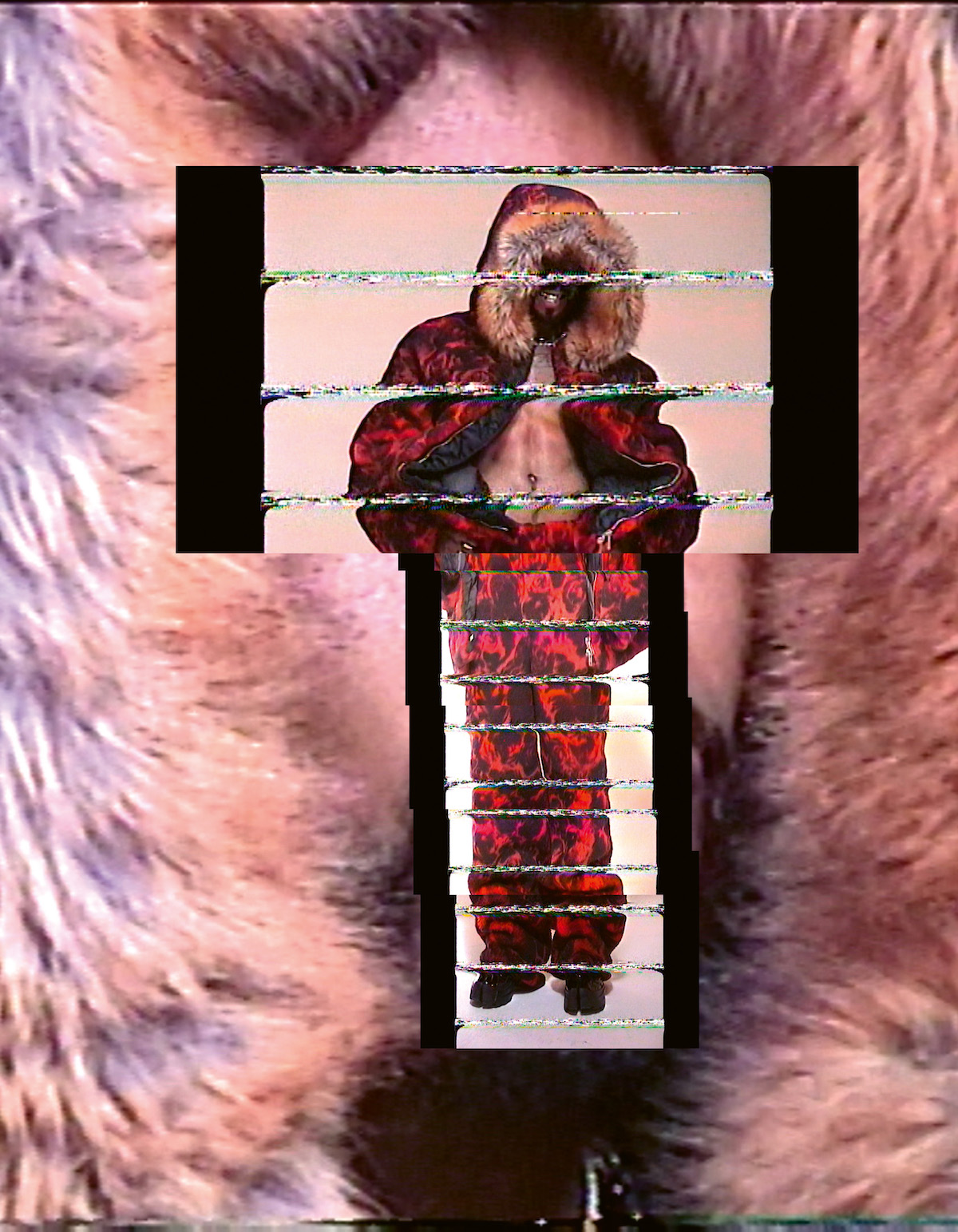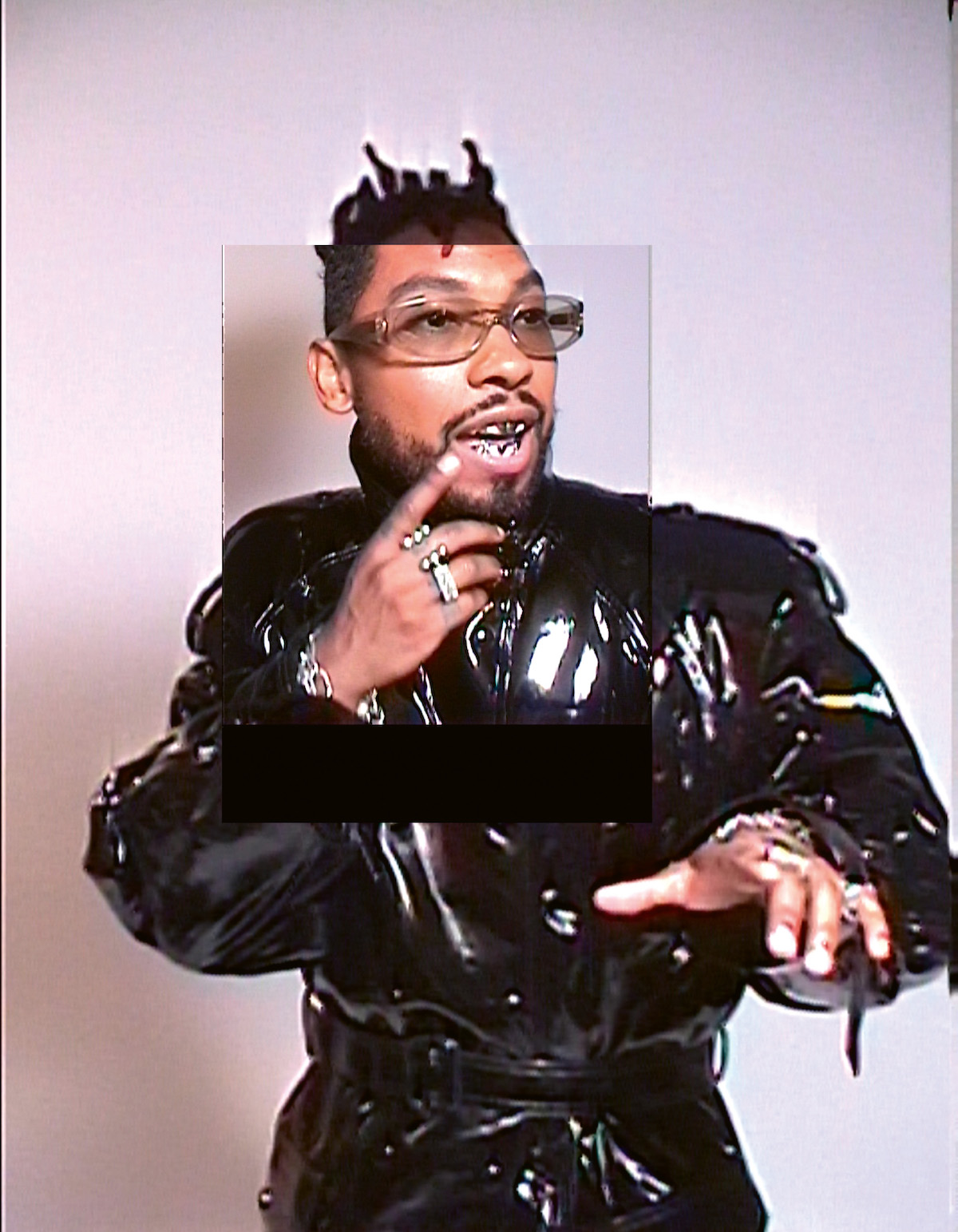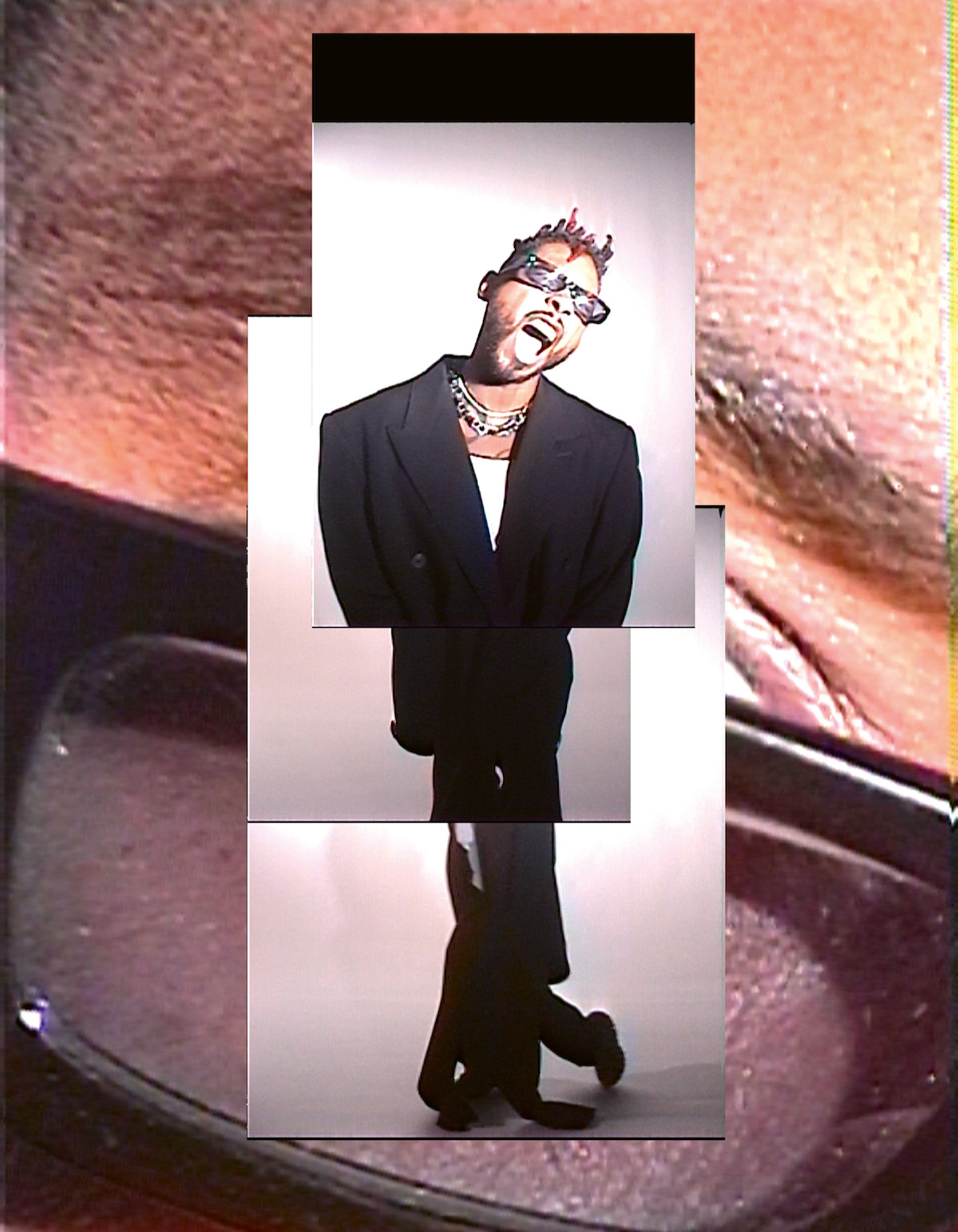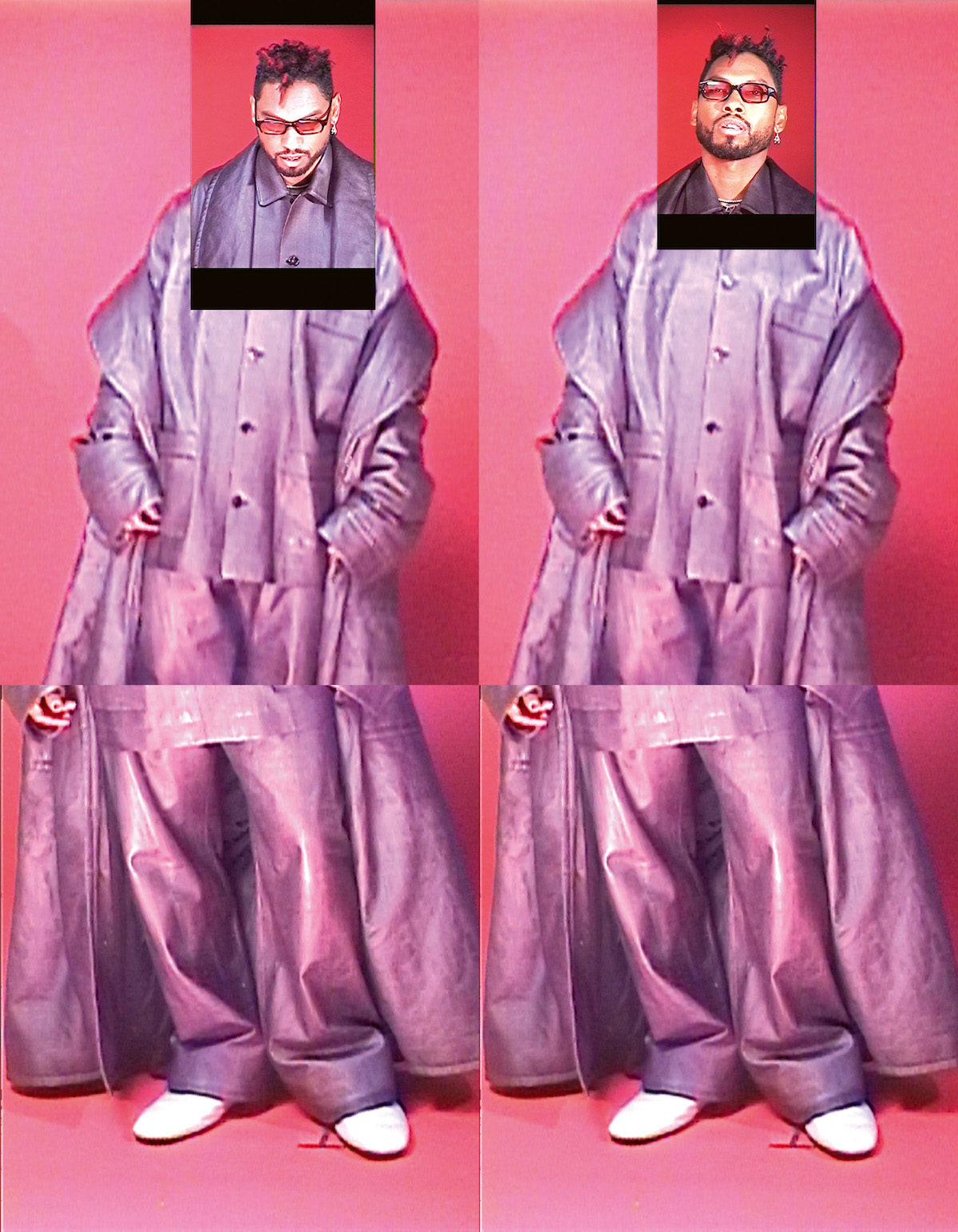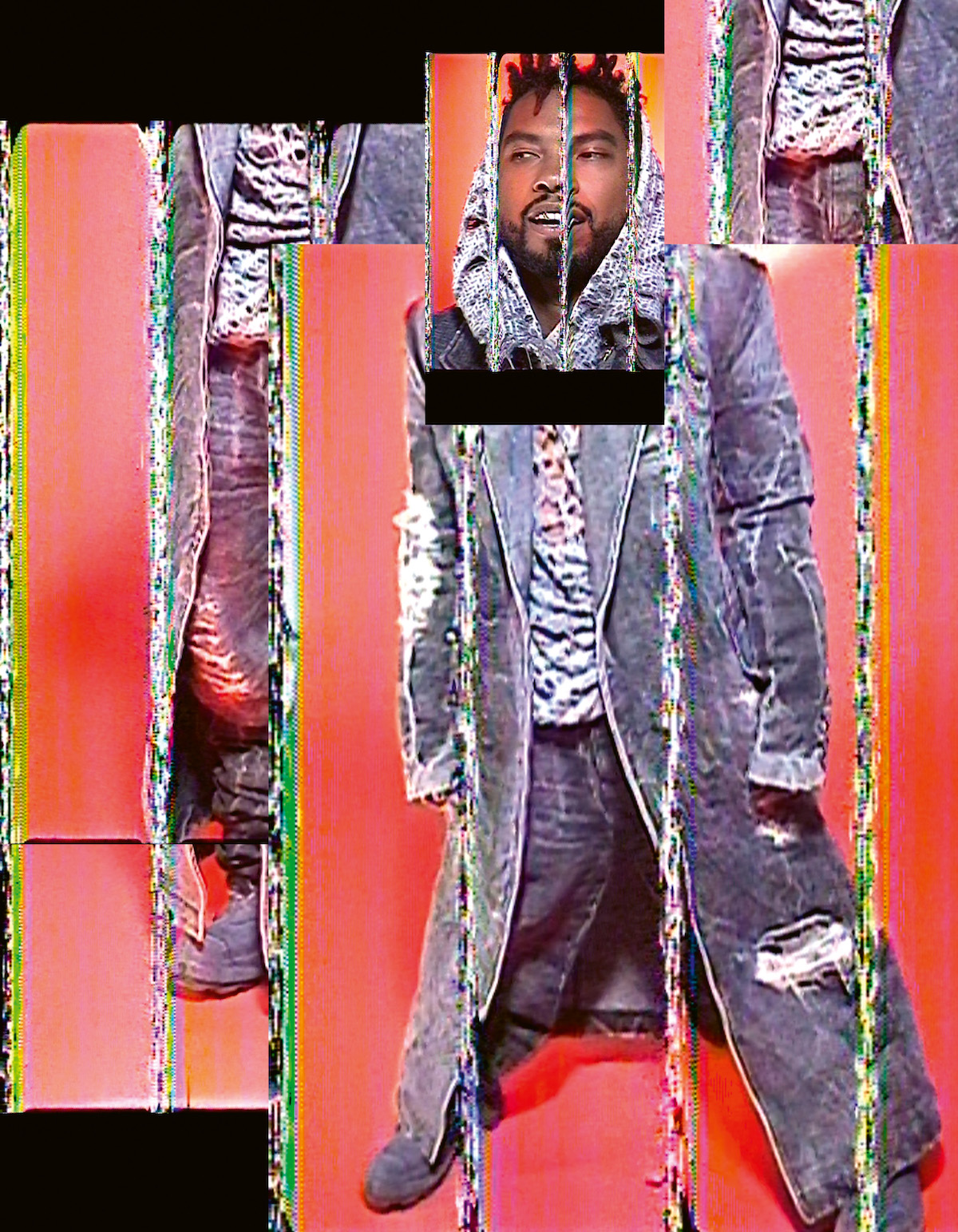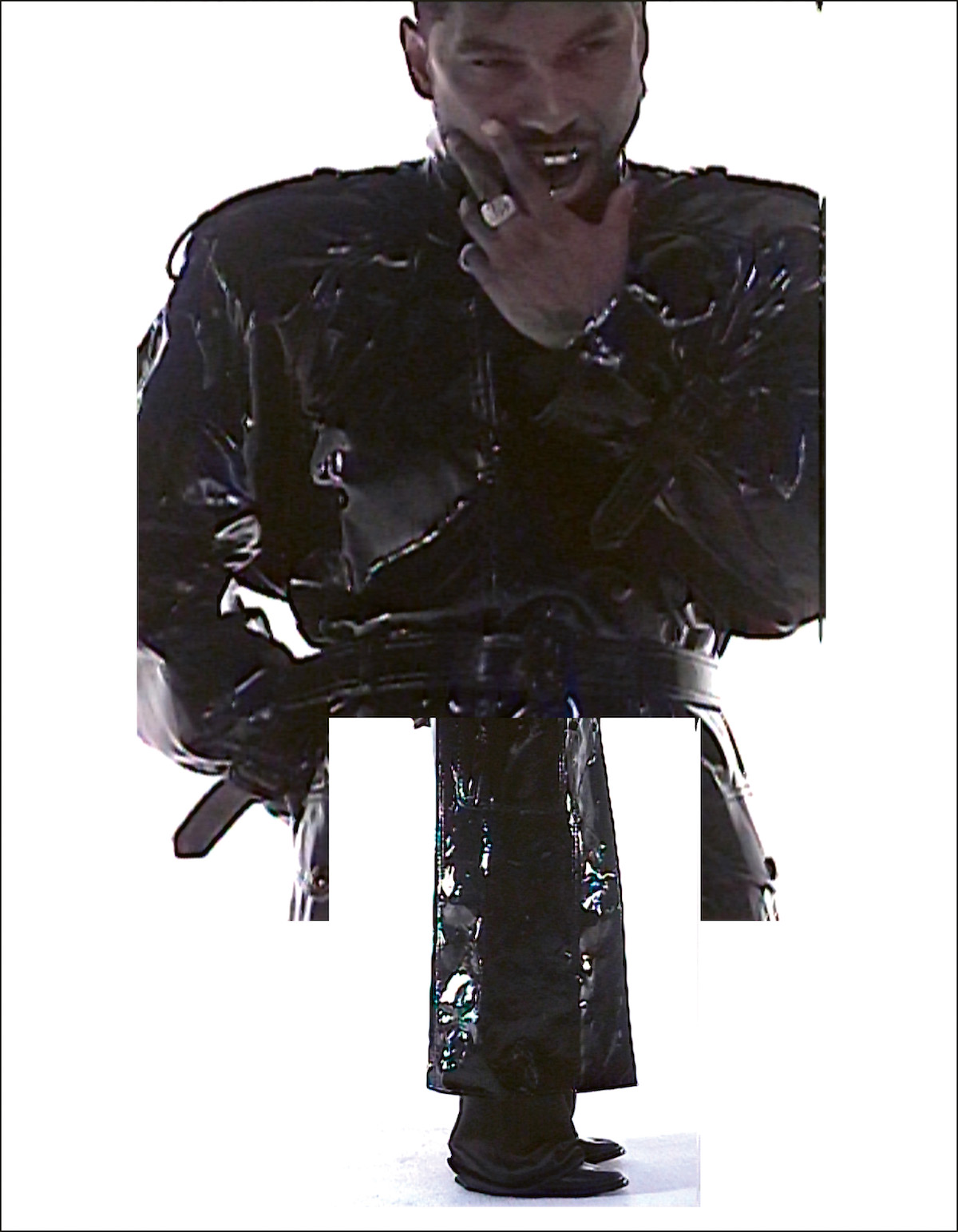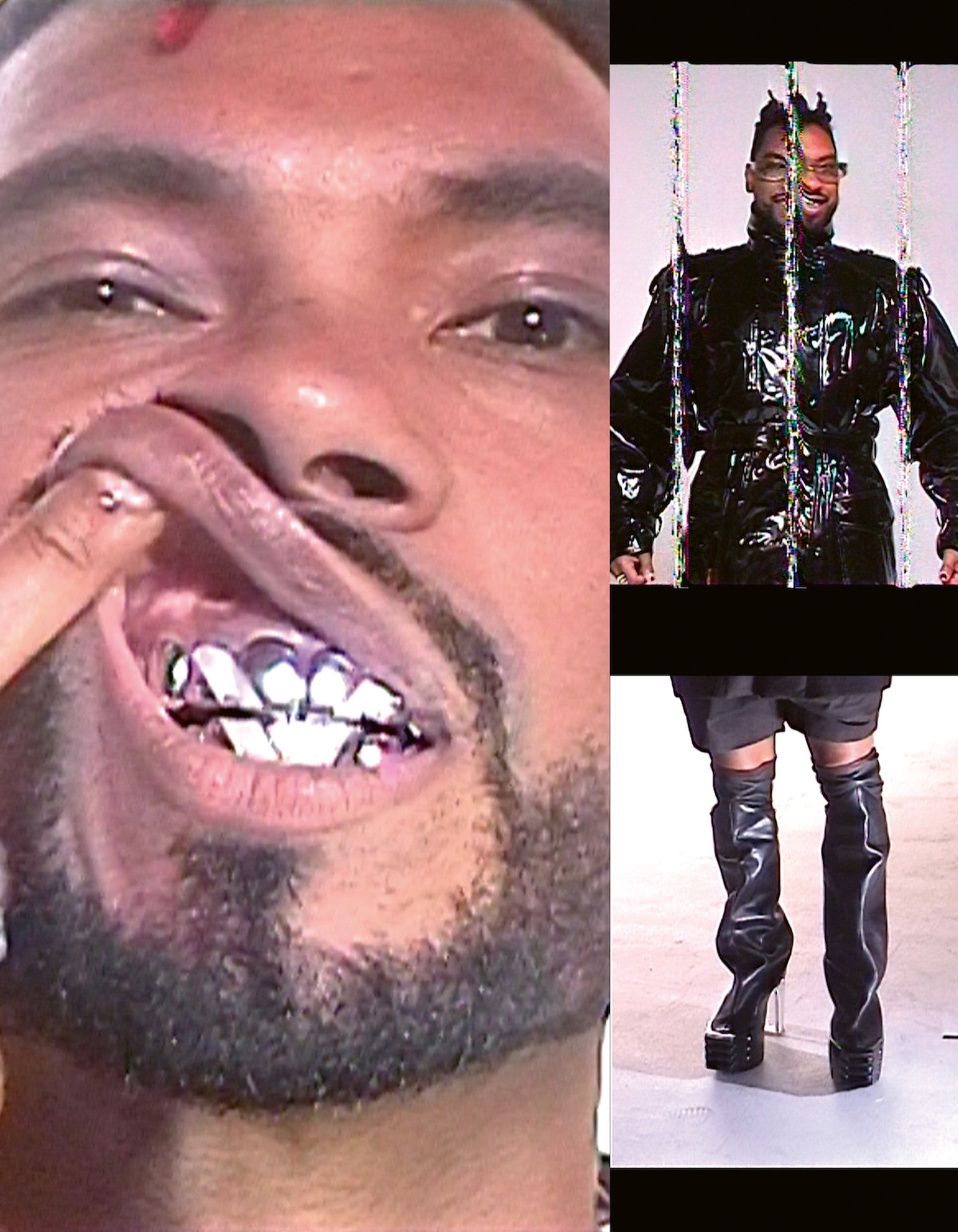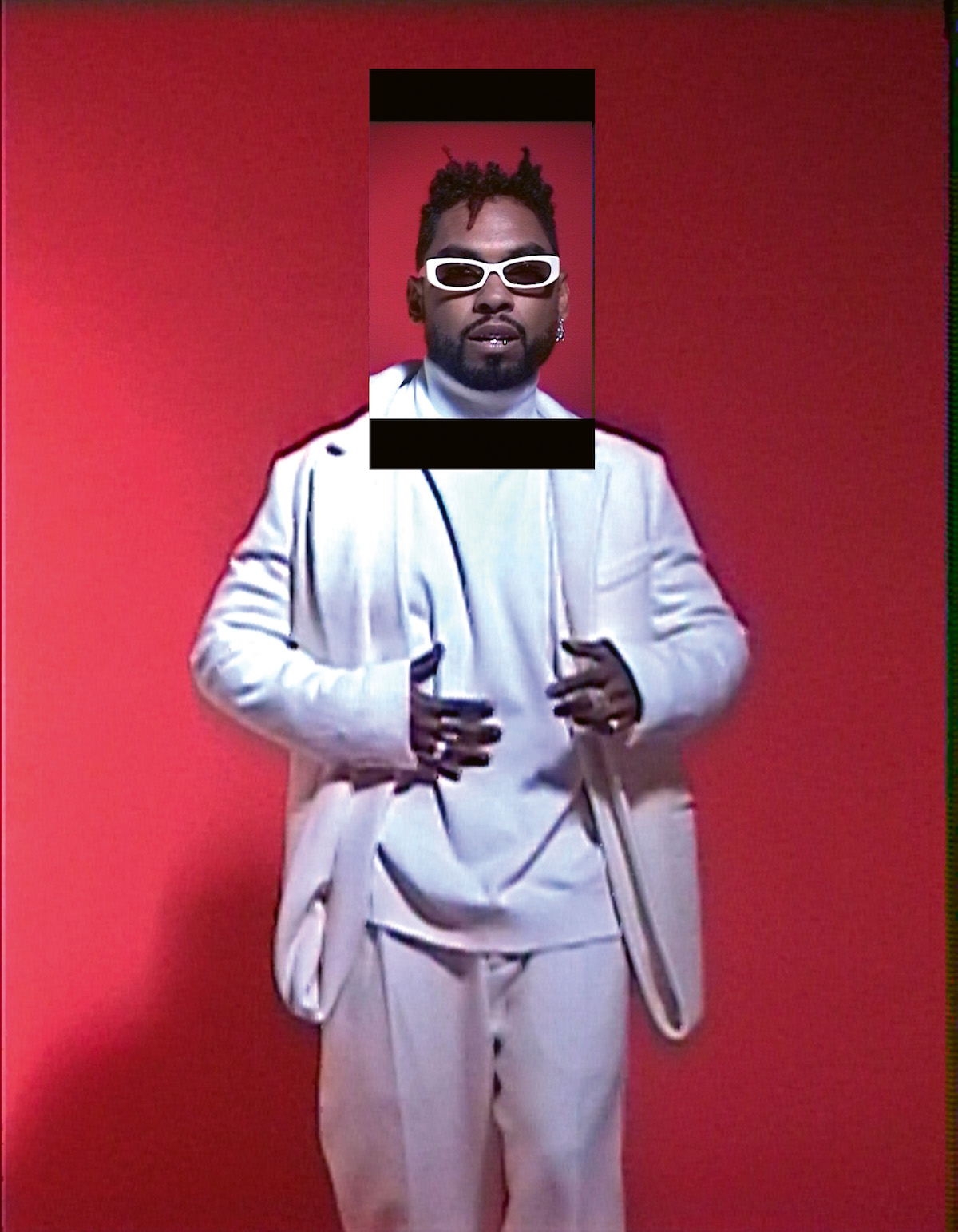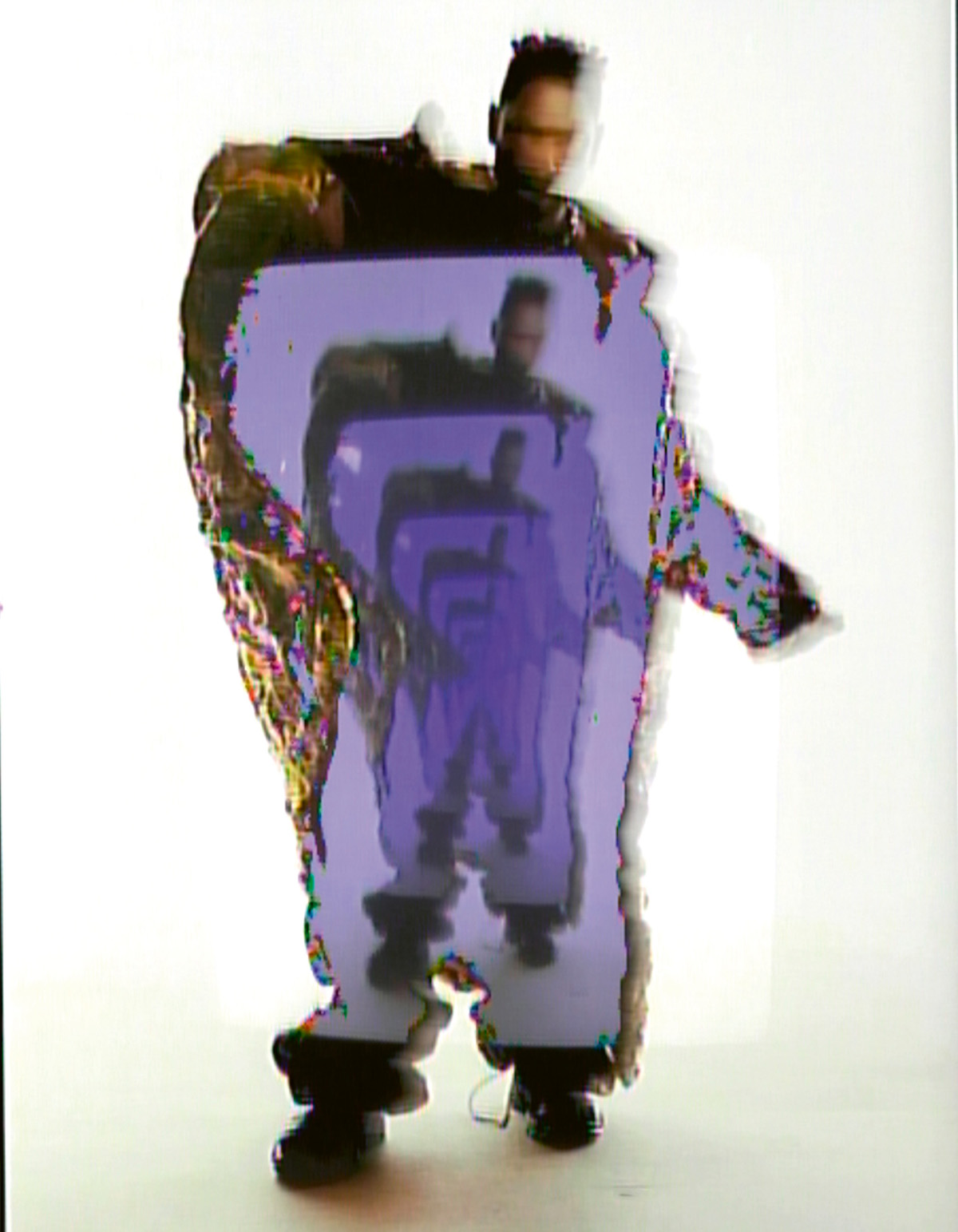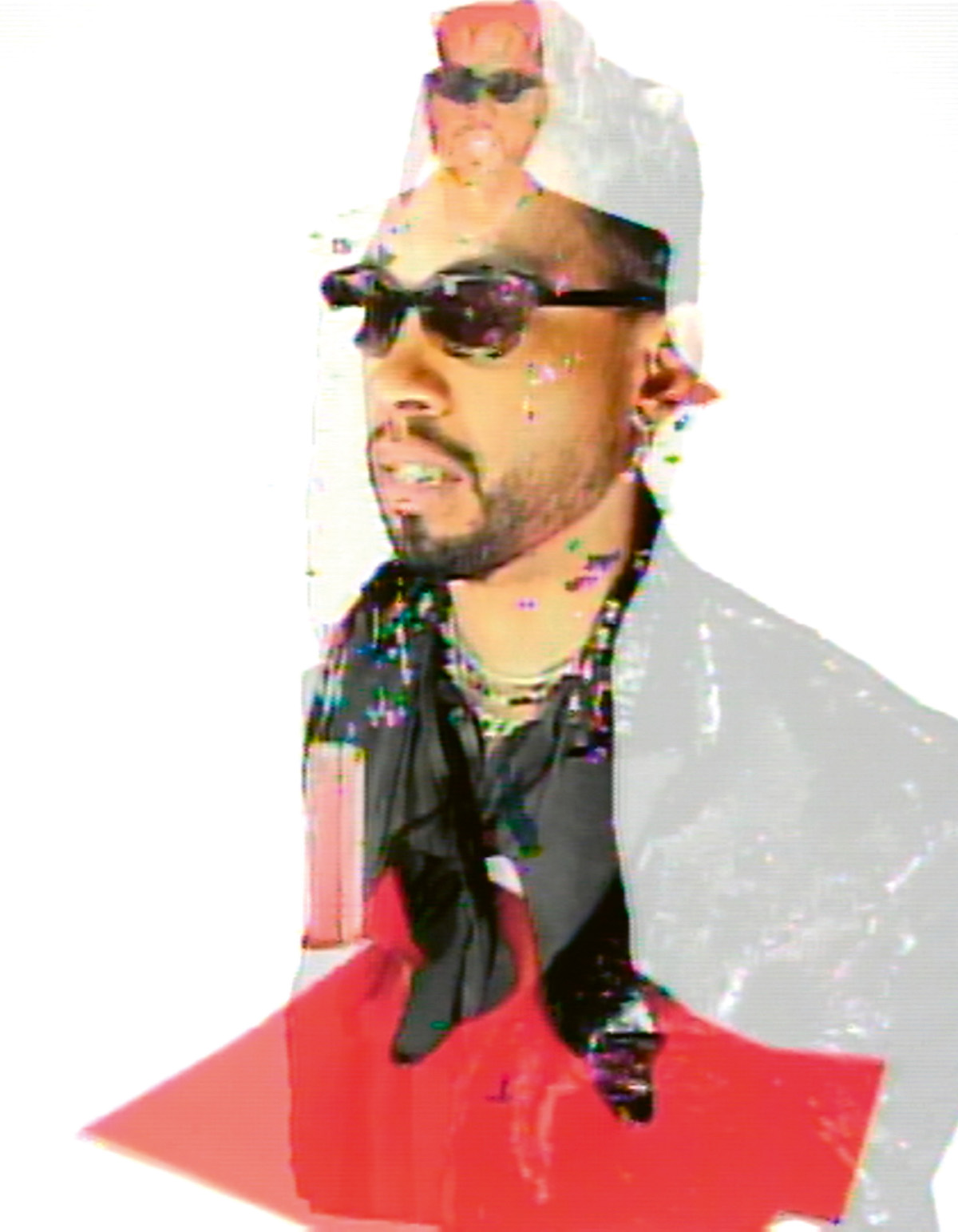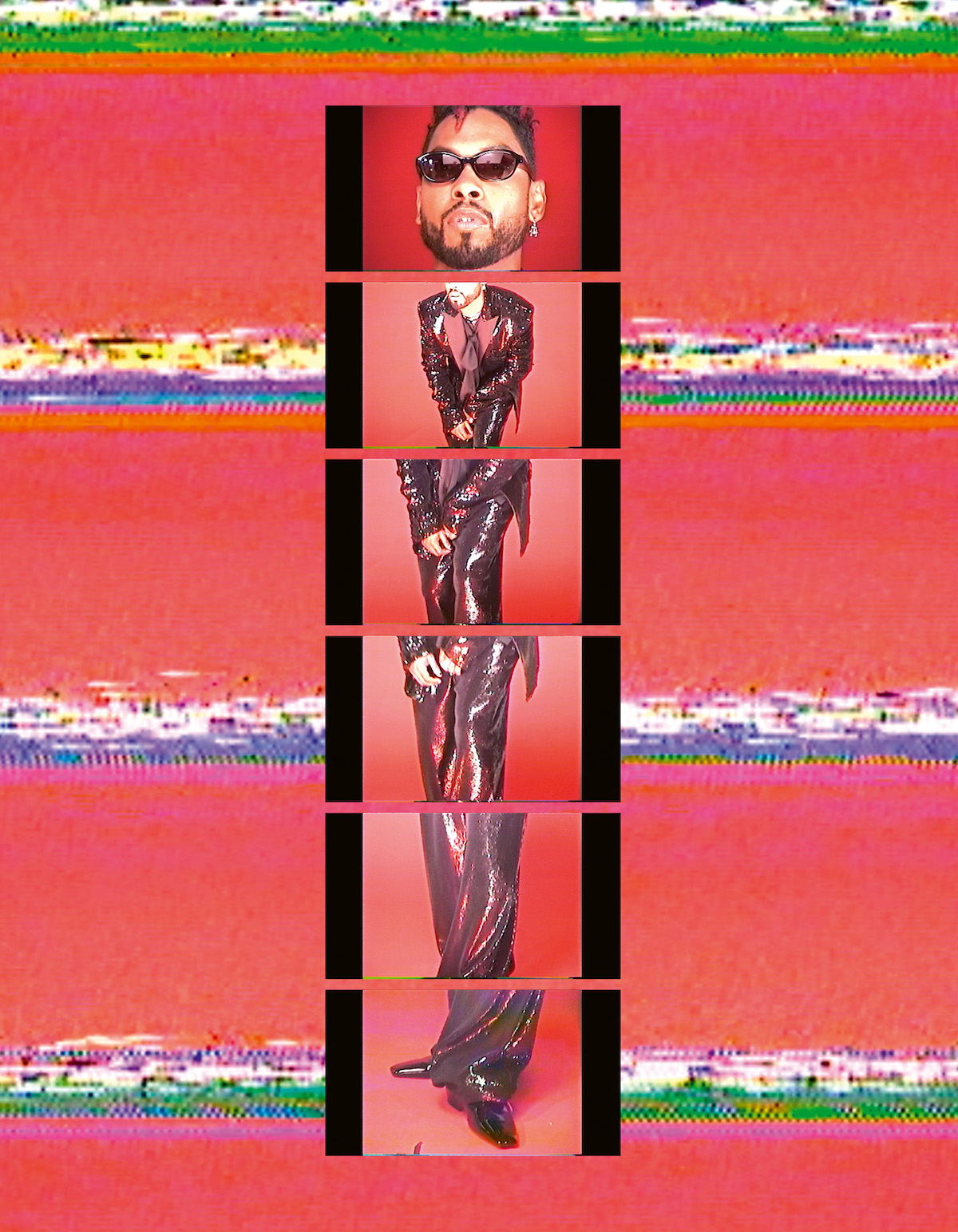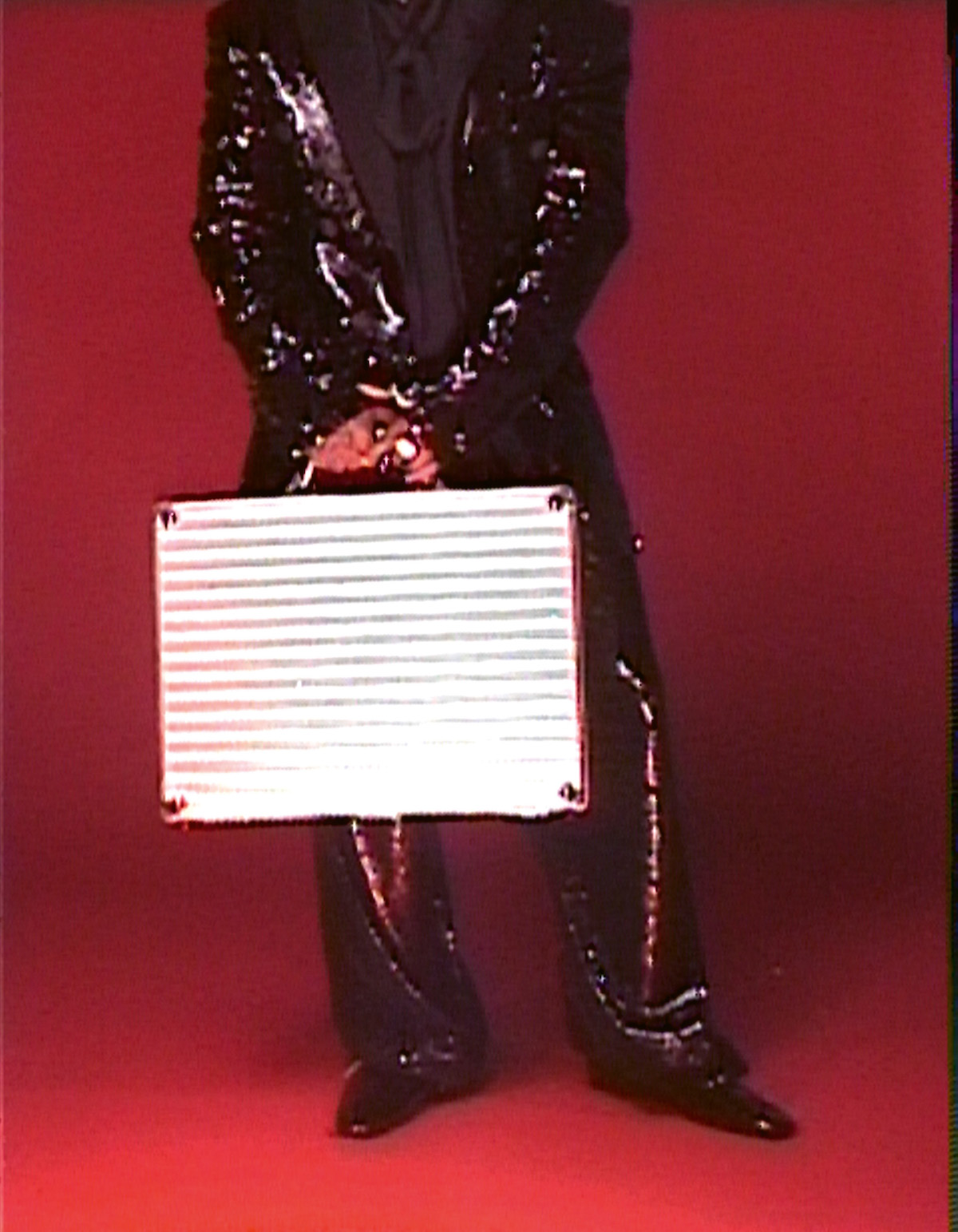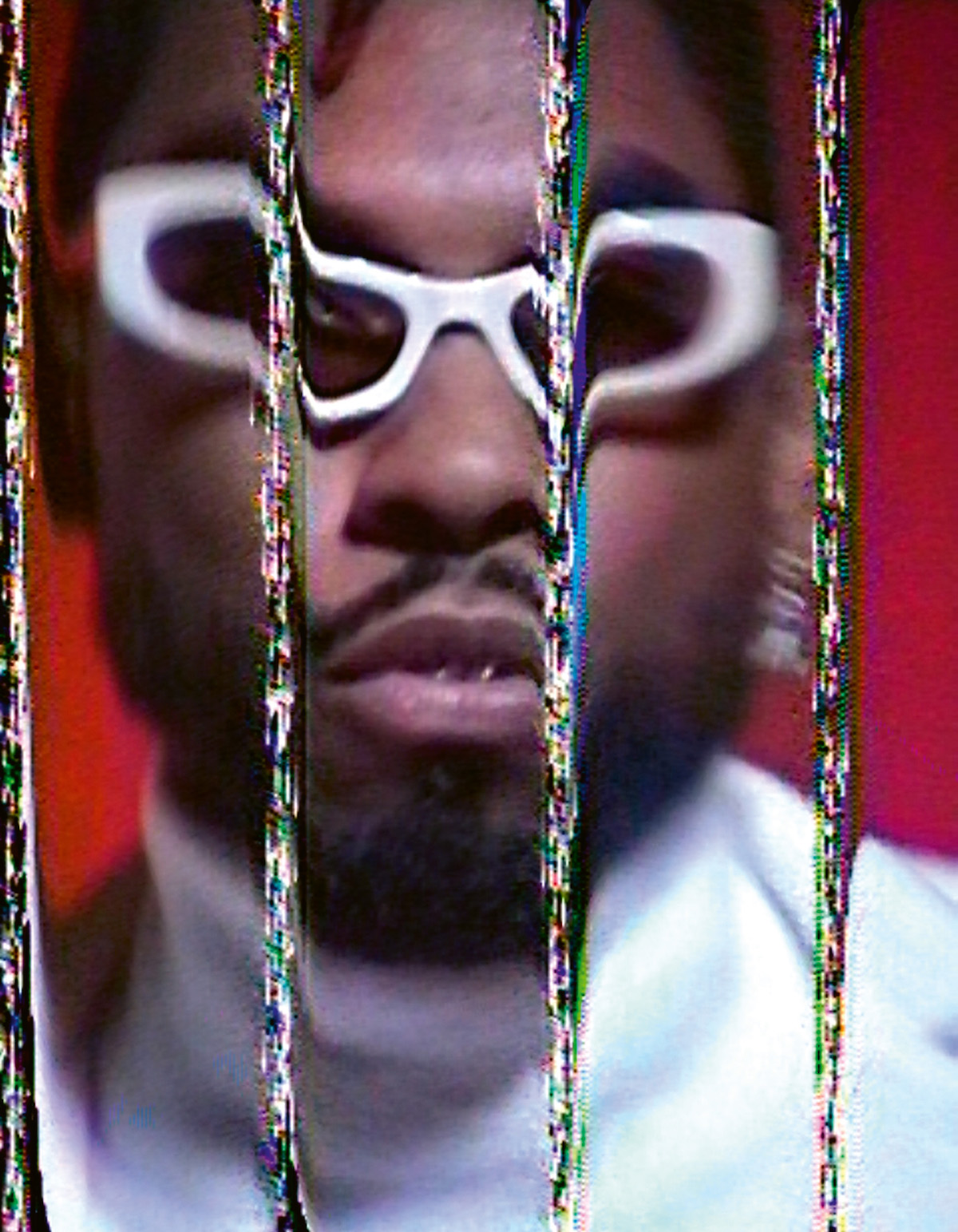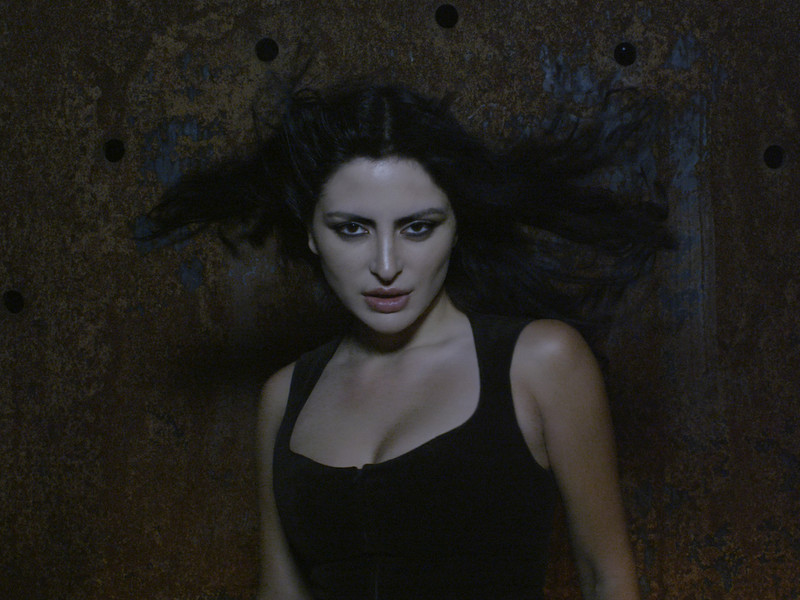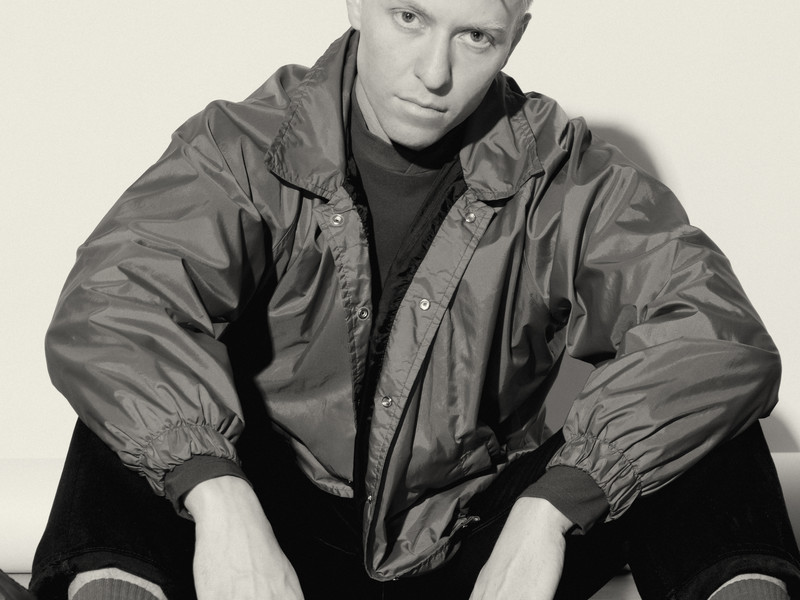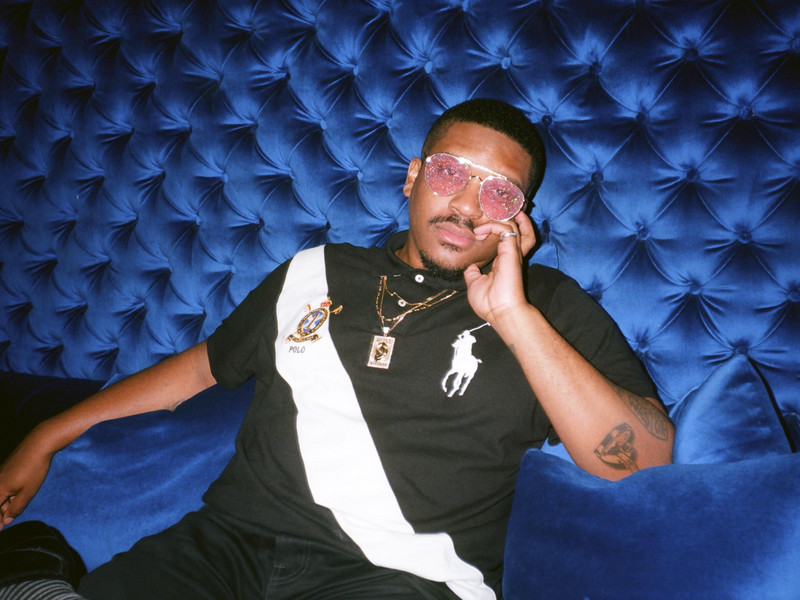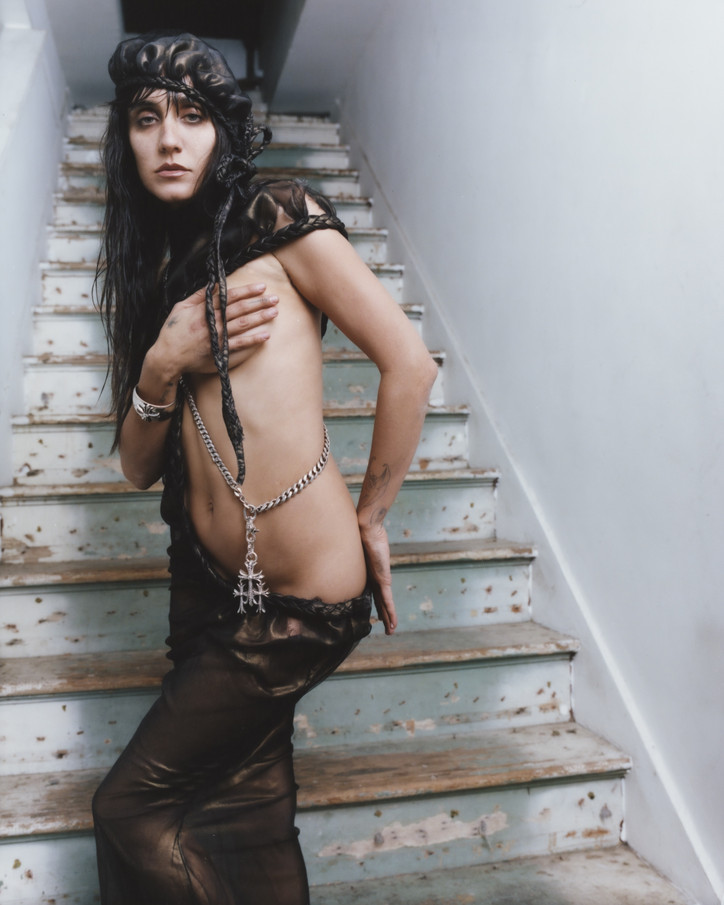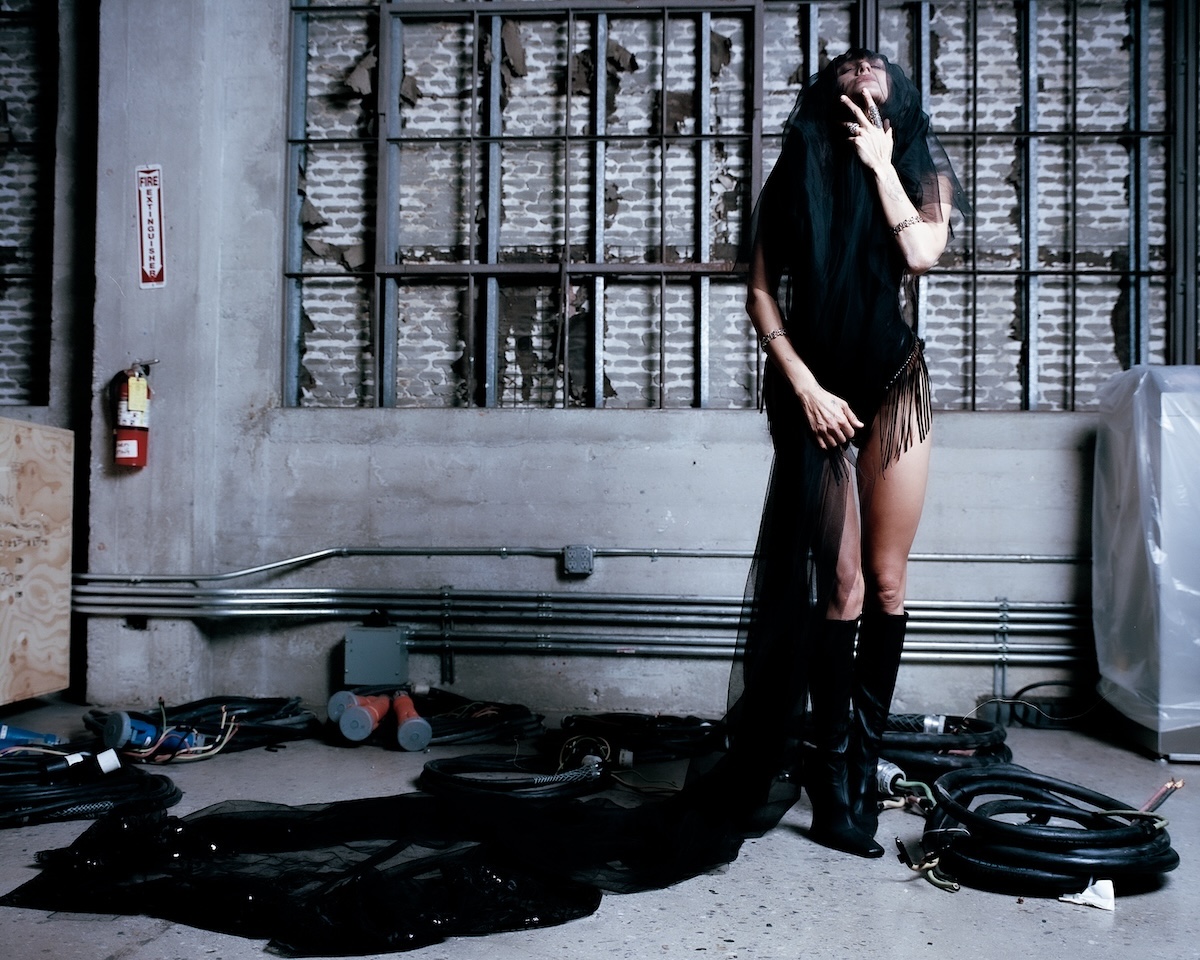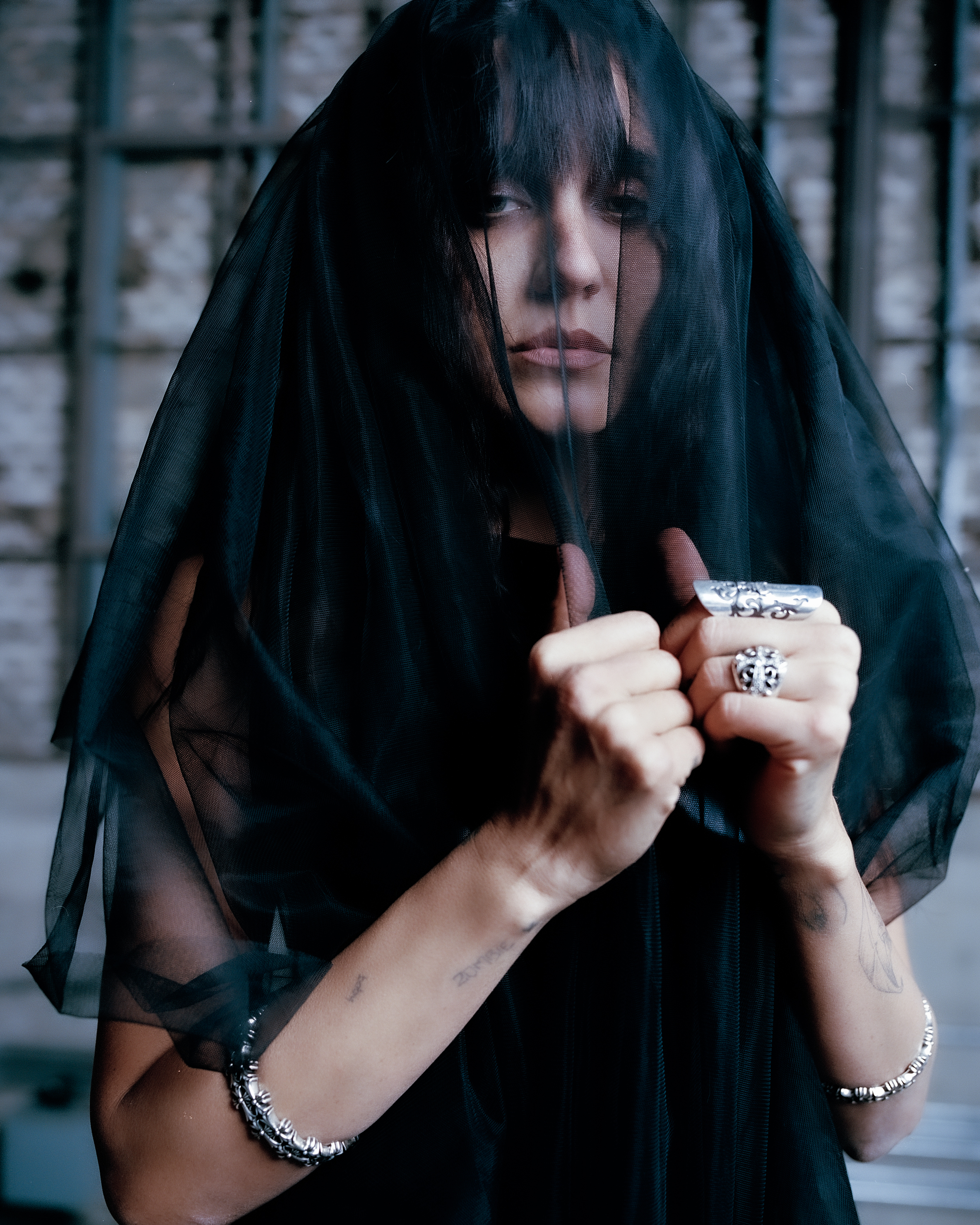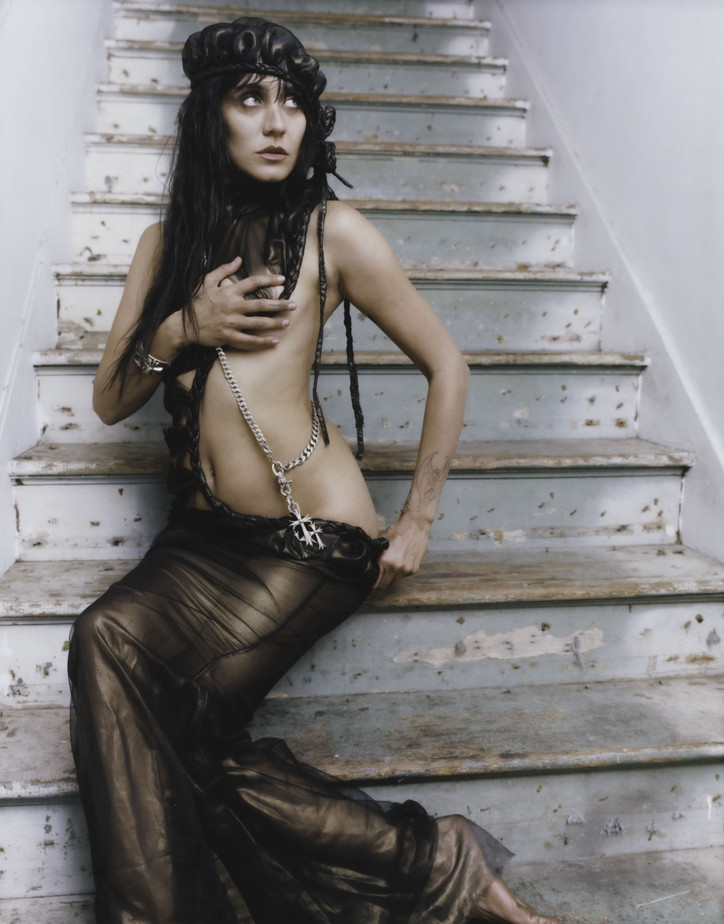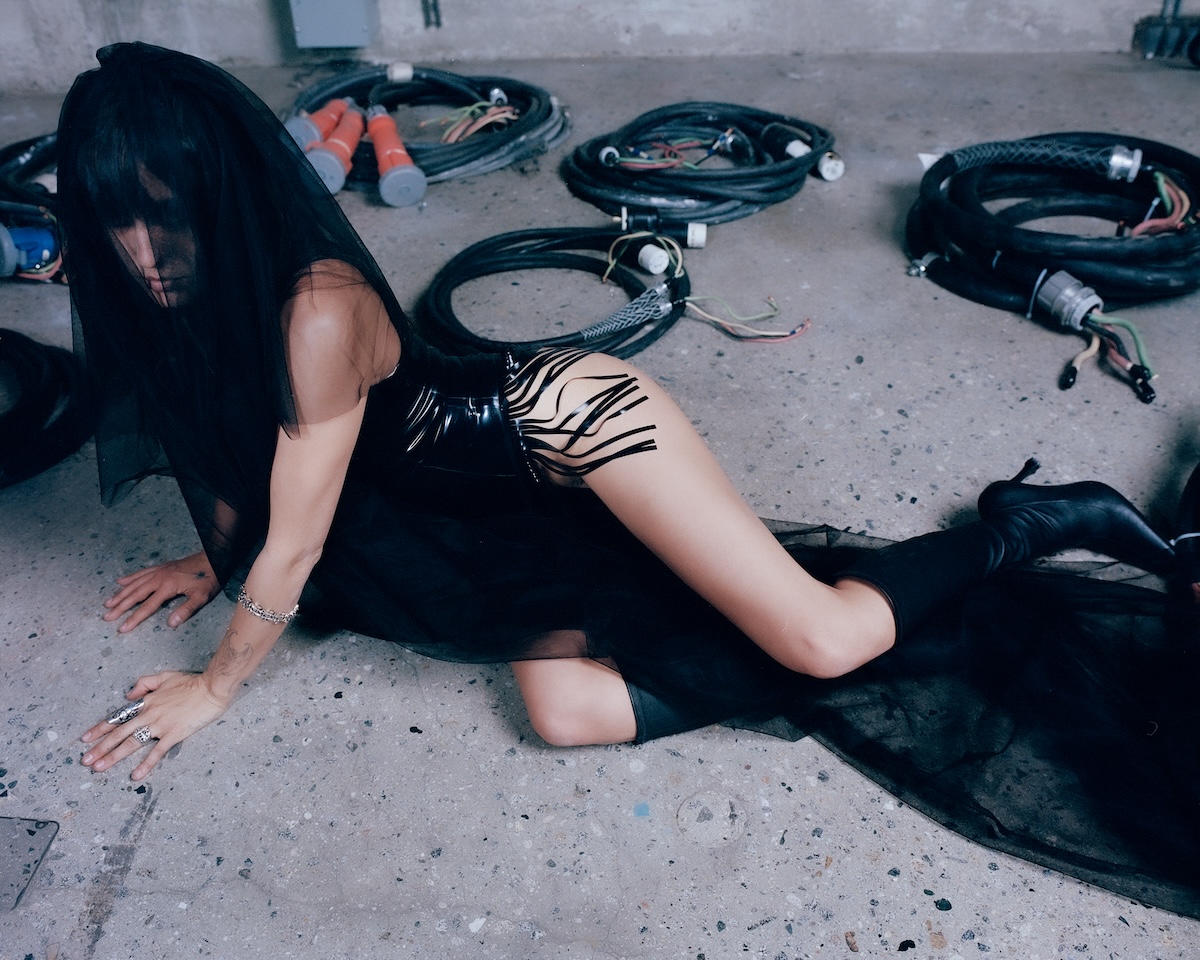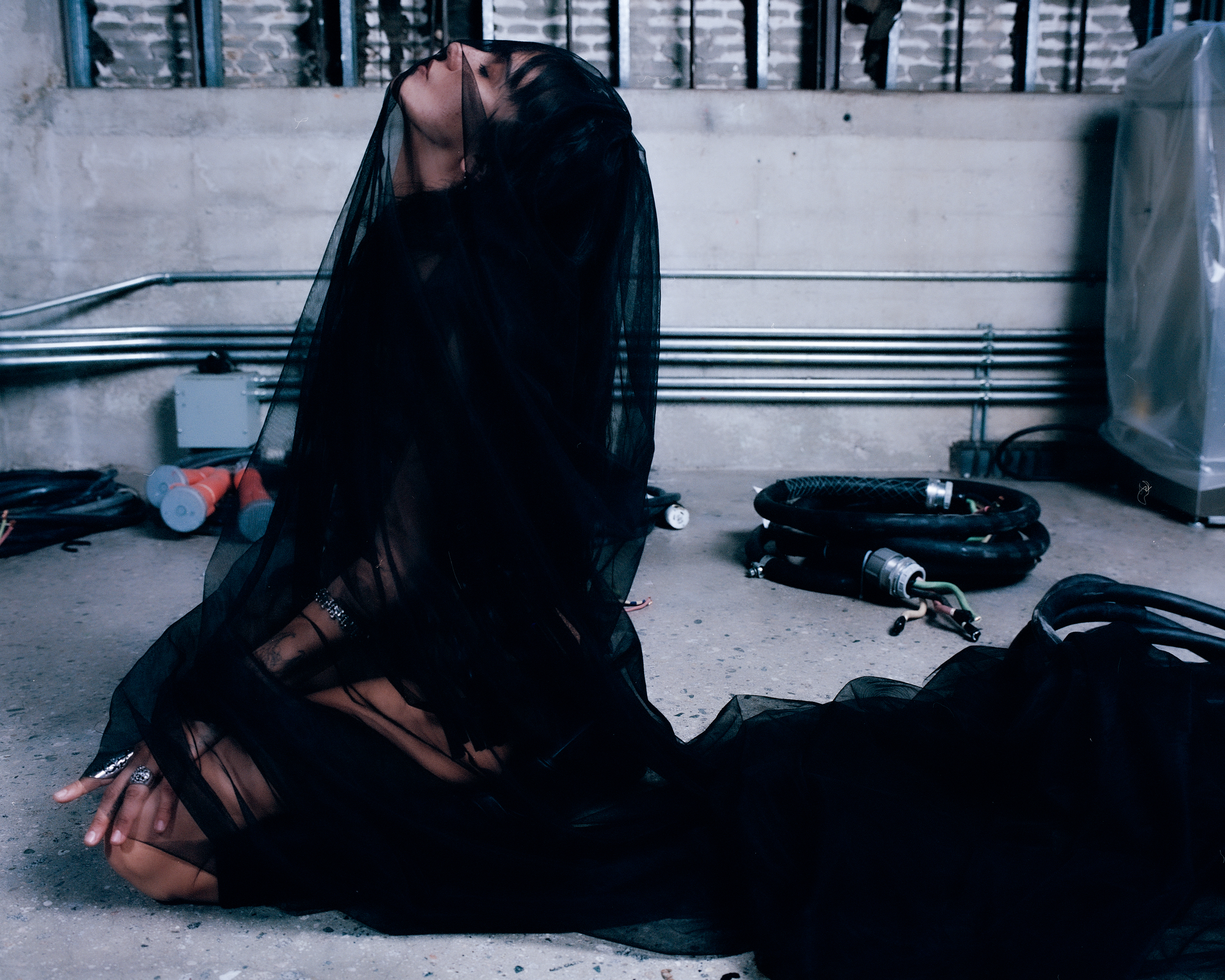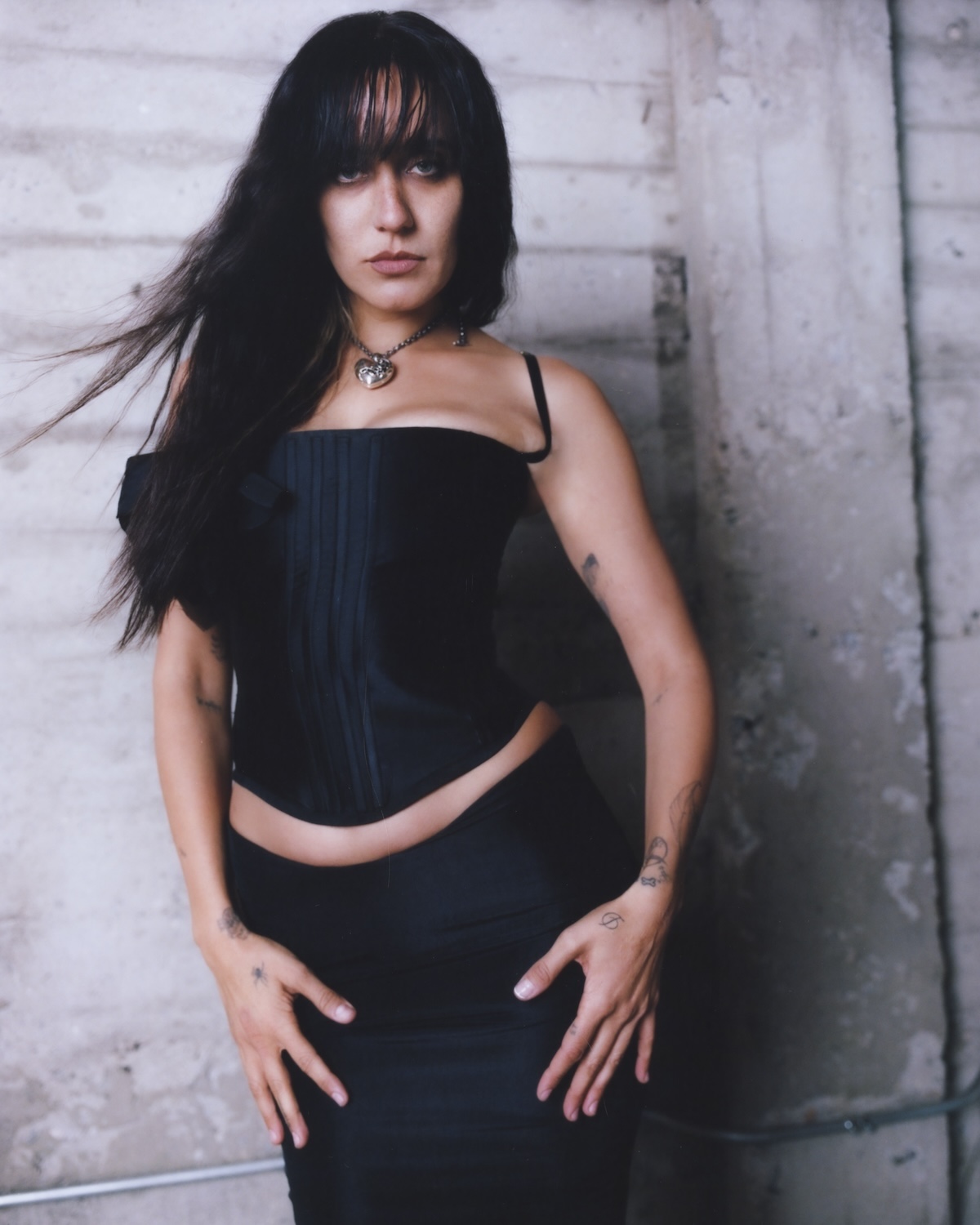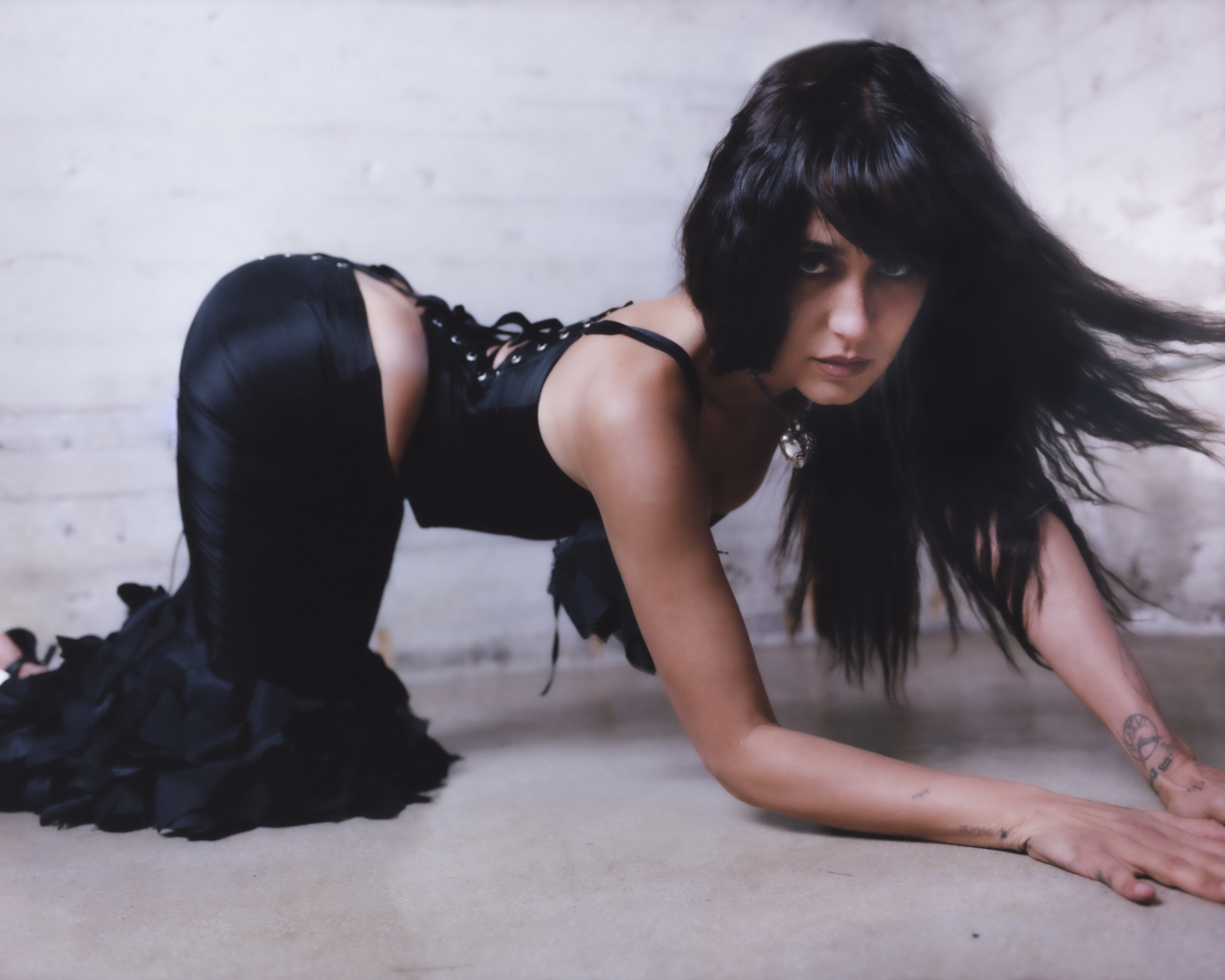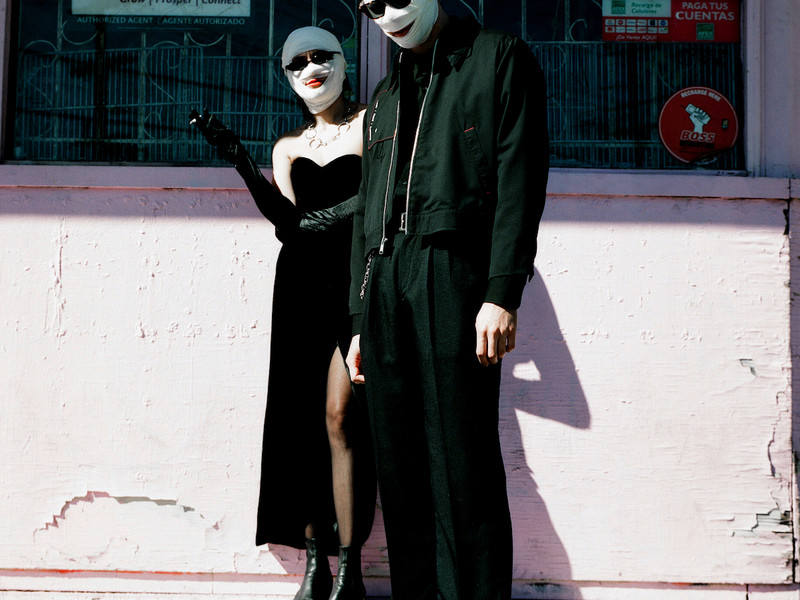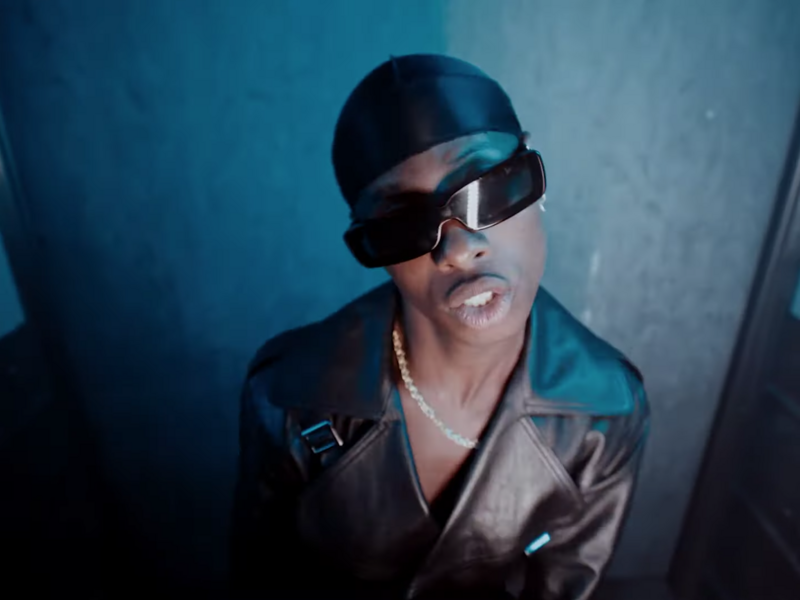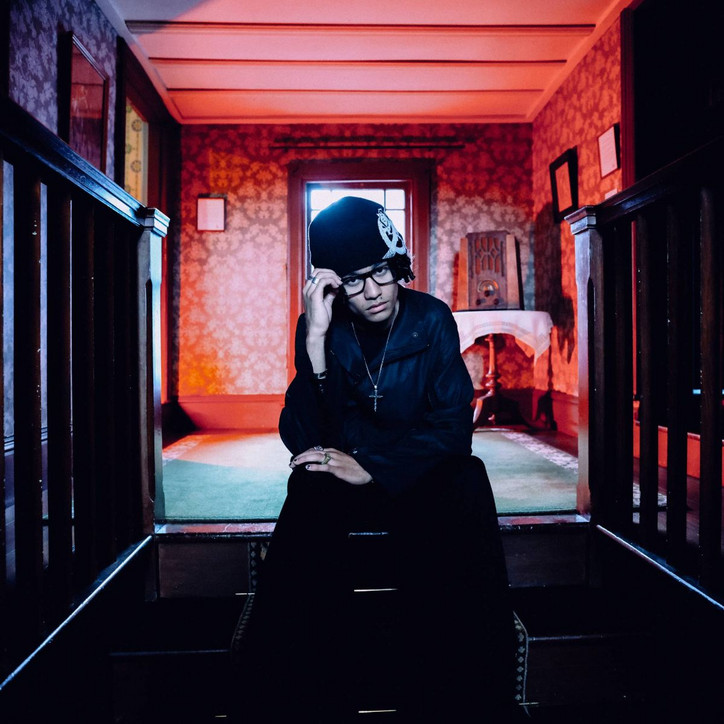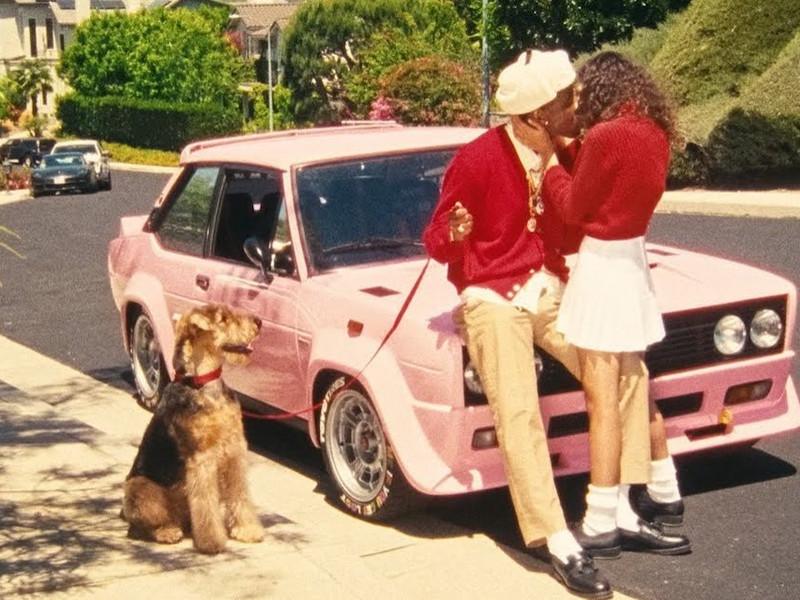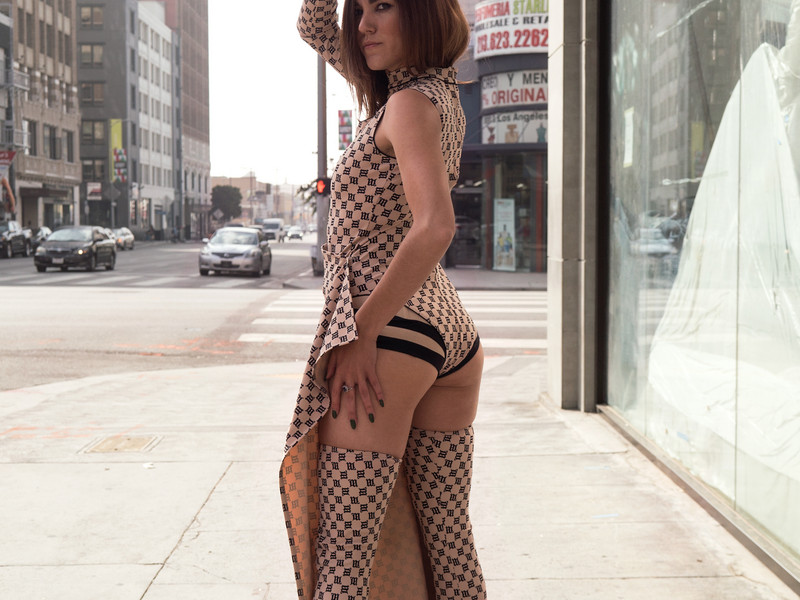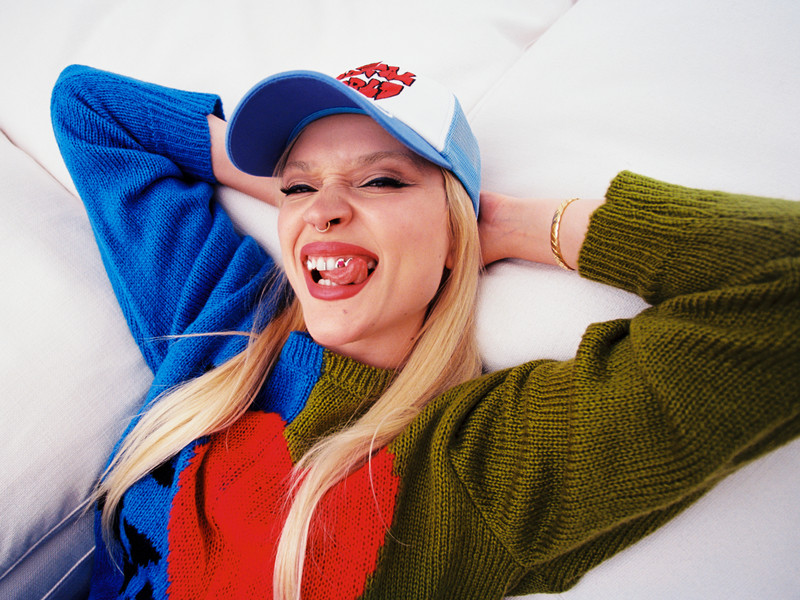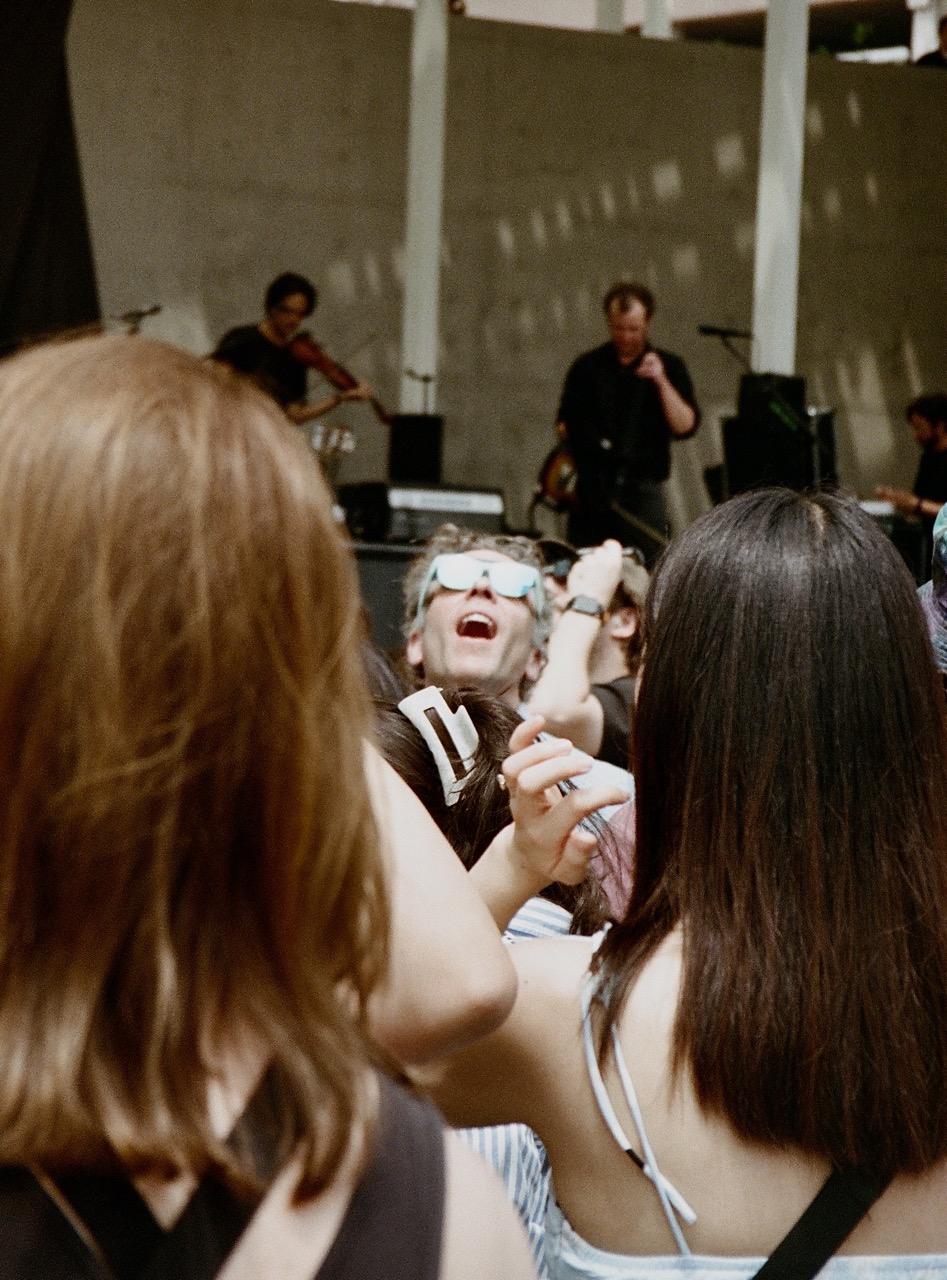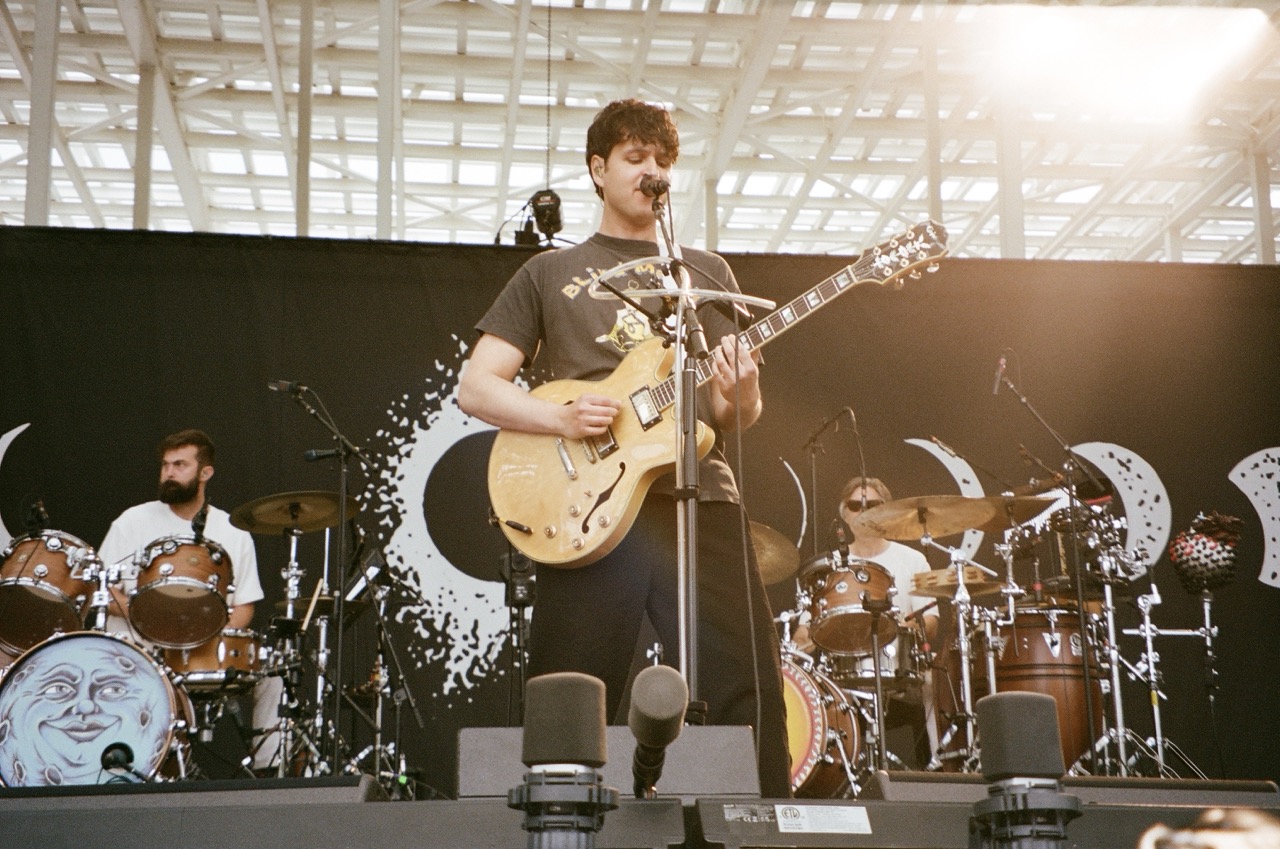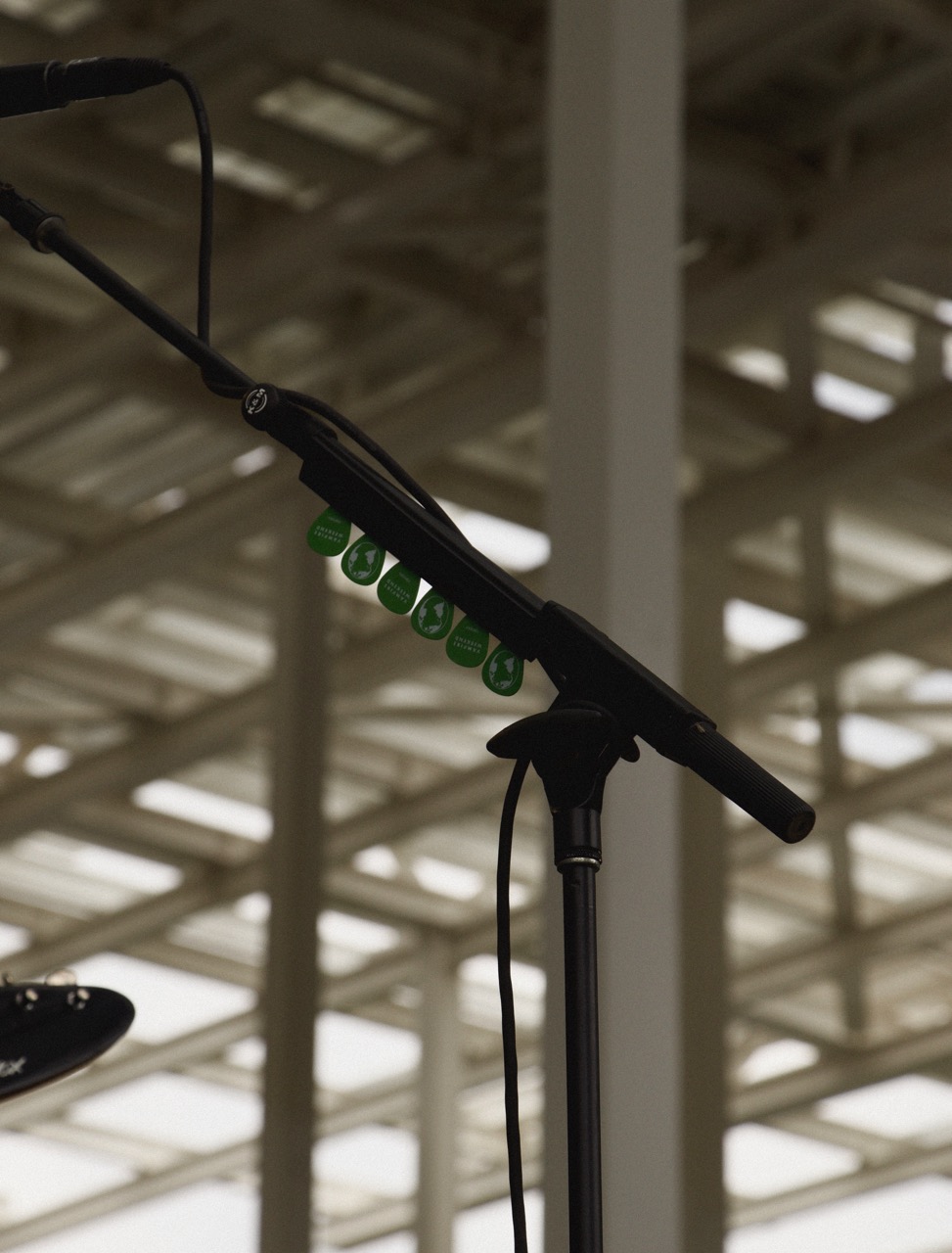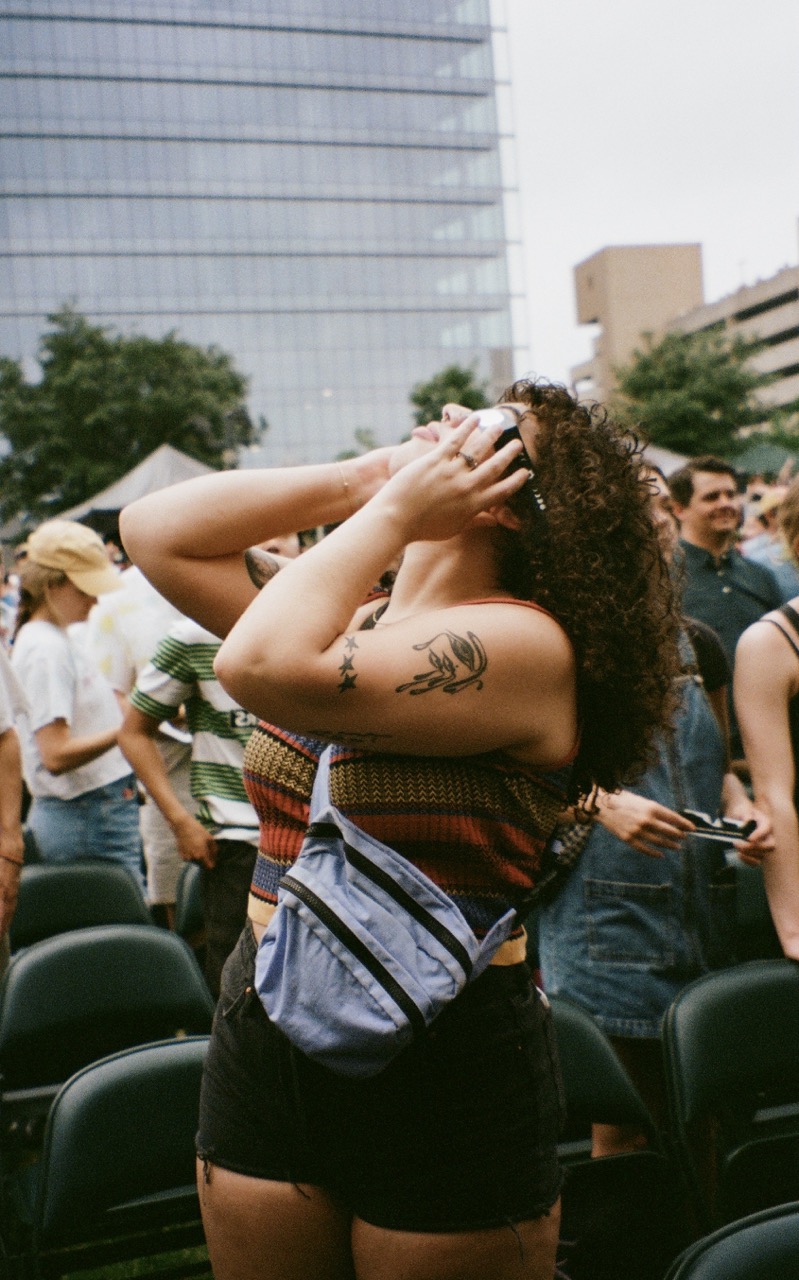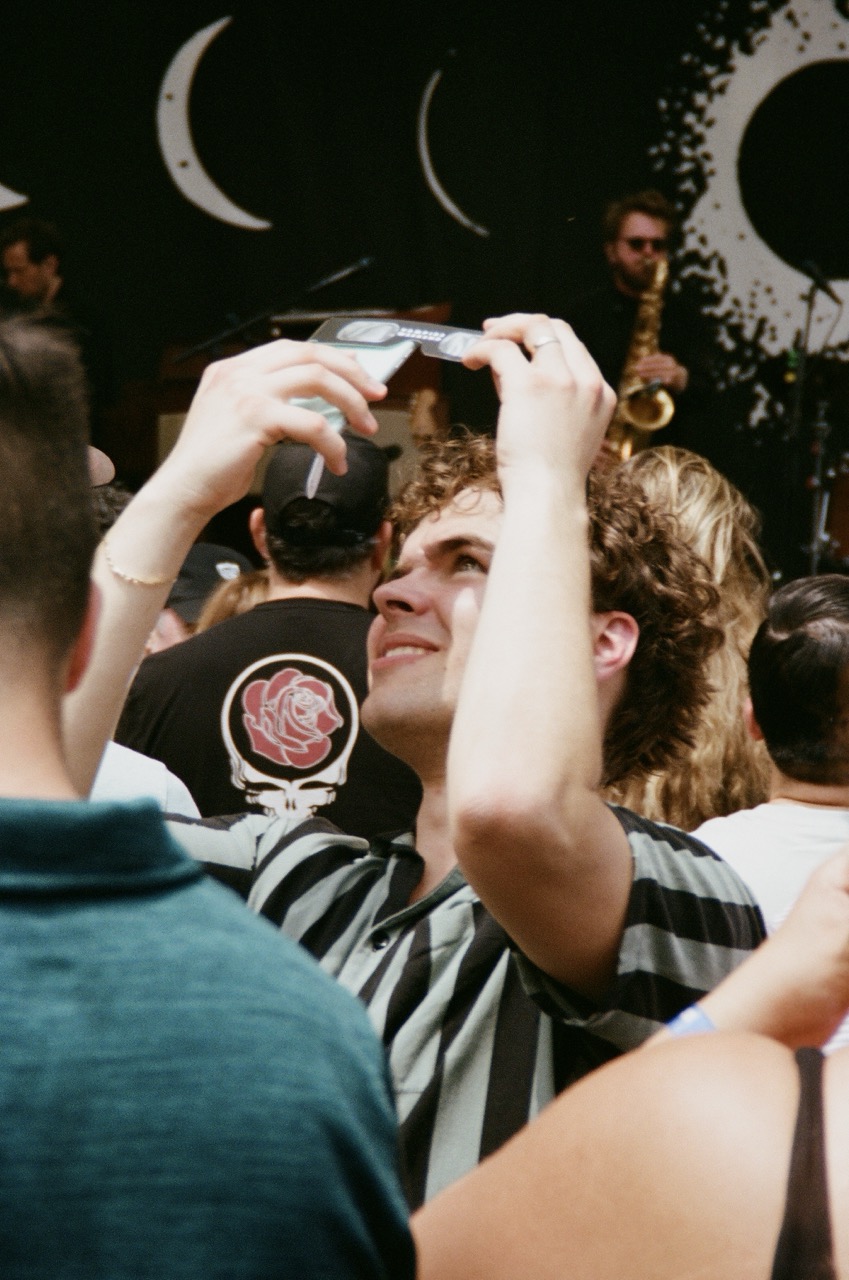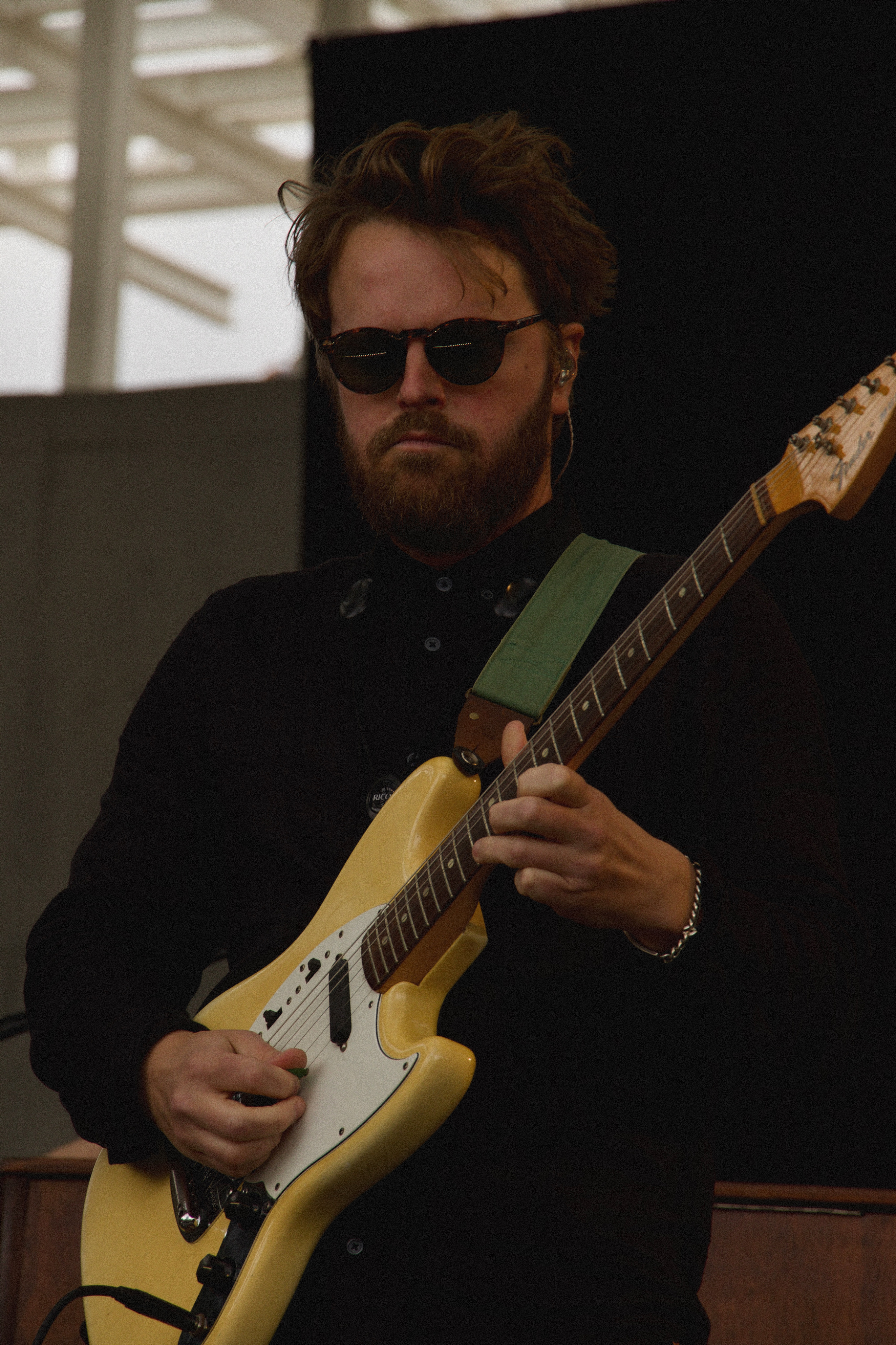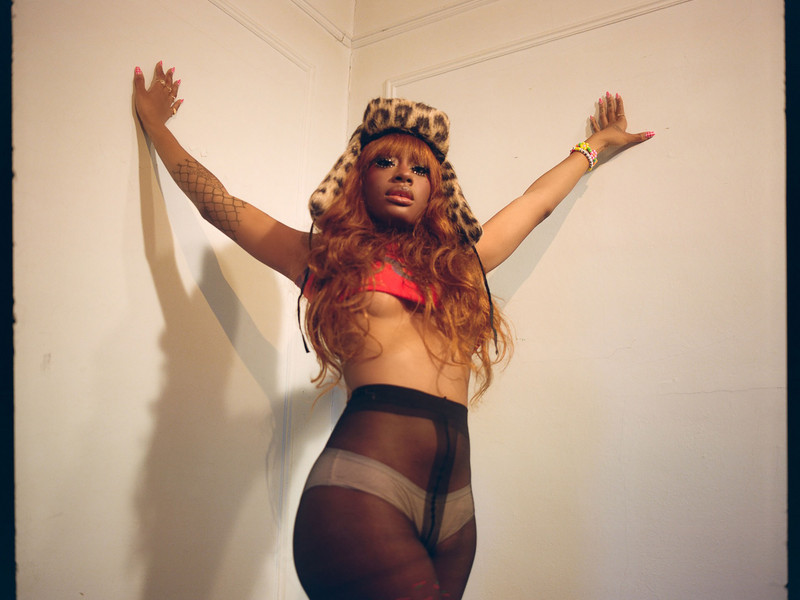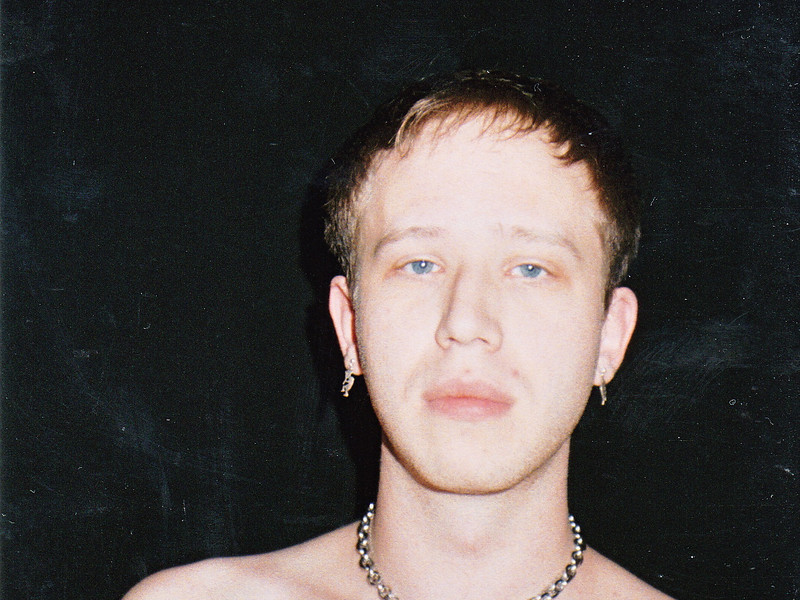I’ve Always Been Punk: Miguel
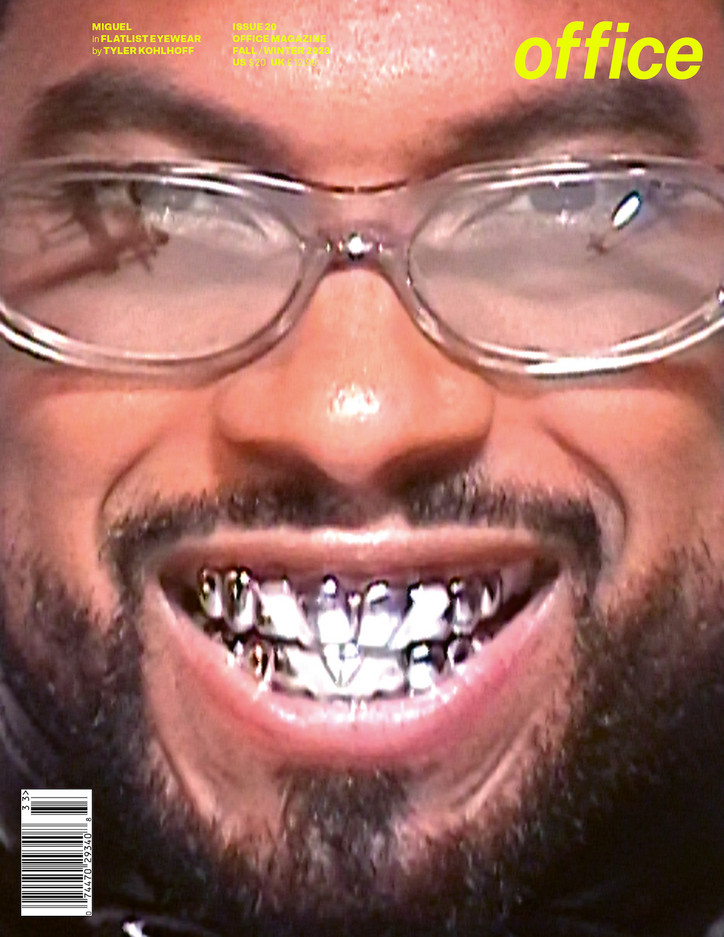
Testing these newfound limitations, he’s taken up the art of body suspension, an ancient spiritual practice that involves rigging a human body to hang from implements that have been placed through temporary perforations in the skin. The pushing of limits both physical and mental and the realizations that come forth from this practice are the creative sapling from which Viscera sprouts.
Both Viscera and suspension are acts of intrepid exploration; fearless plunges into the dim limits and unexplored recesses of Miguel’s body and mind. What reemerges from this mental cartography is a record from Miguel that is more raw and vulnerable than ever before. Within the context of the album, Miguel is wholly reimagining his relationship to himself in the search for authenticity and nourishment. Viscera is an act of forgiveness, acceptance, and self-love — his life and subconscious alchemized and transmuted into song.
Tracks like “Number 9”, which Miguel considers the album’s conceptual centerpiece, demonstrate his ability to develop ideas without smoothing over their complexity, reflecting a discipline at times lacking in past projects. This newfound discipline is a byproduct of the calculated restraint he’s instilled upon himself during the last few years.
He traces this journey back to the idiosyncratic punk scene of his youth in San Pedro, California, where the frenzied backyard shows of local bands like Minuteman instilled in him the values of self-respect and accountability as well as the necessity of violent forms of catharsis.
For this issue of office, Miguel went on a hike with Editor-in-Chief Simon Rasmussen to unravel the beliefs, experiences, and lessons that have shaped this stage of his becoming. Traversing the trails of Griffith Observatory, Miguel reflected on vivid childhood memories of music, growing up in-between races and religions, mortality, and being true to oneself.
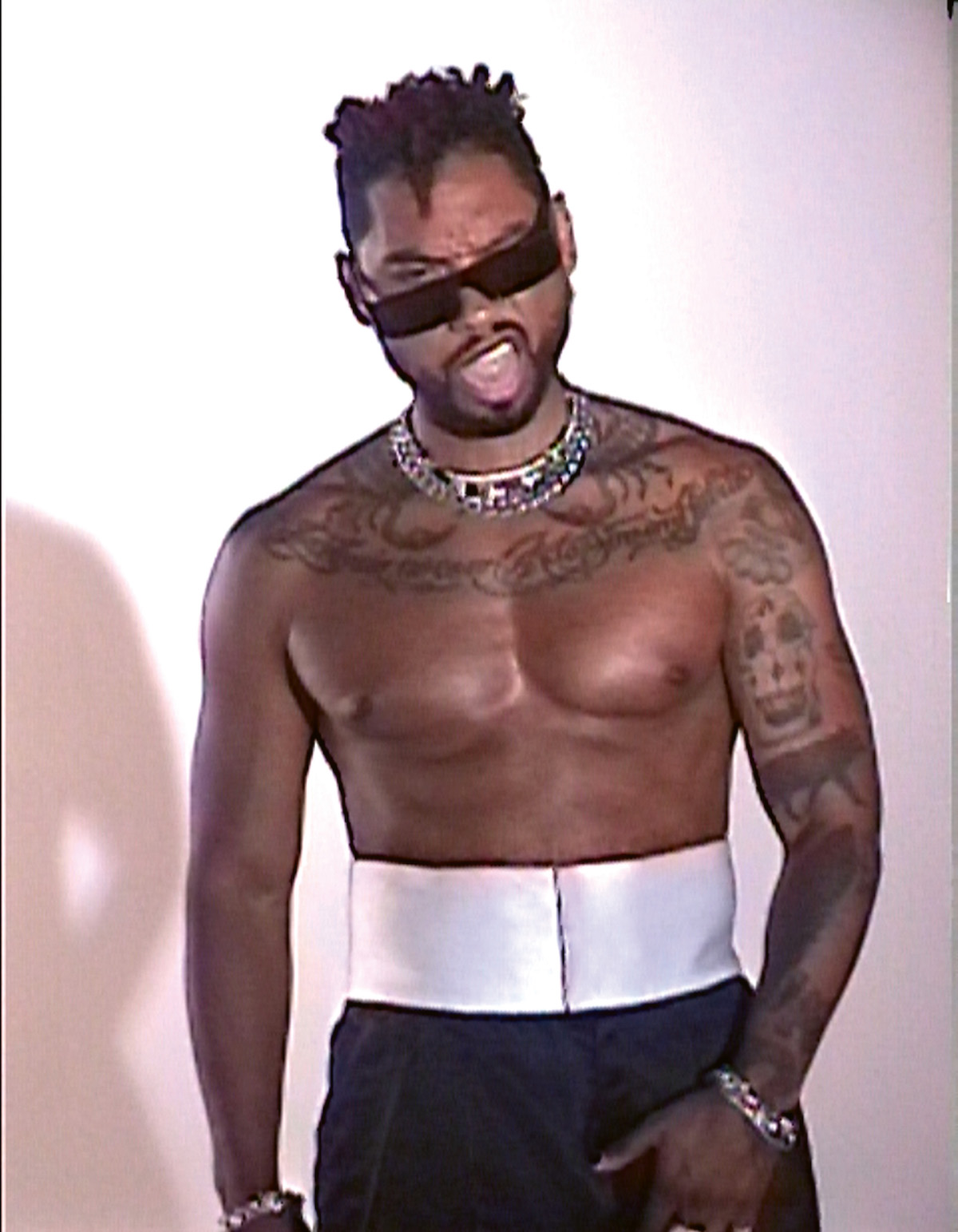
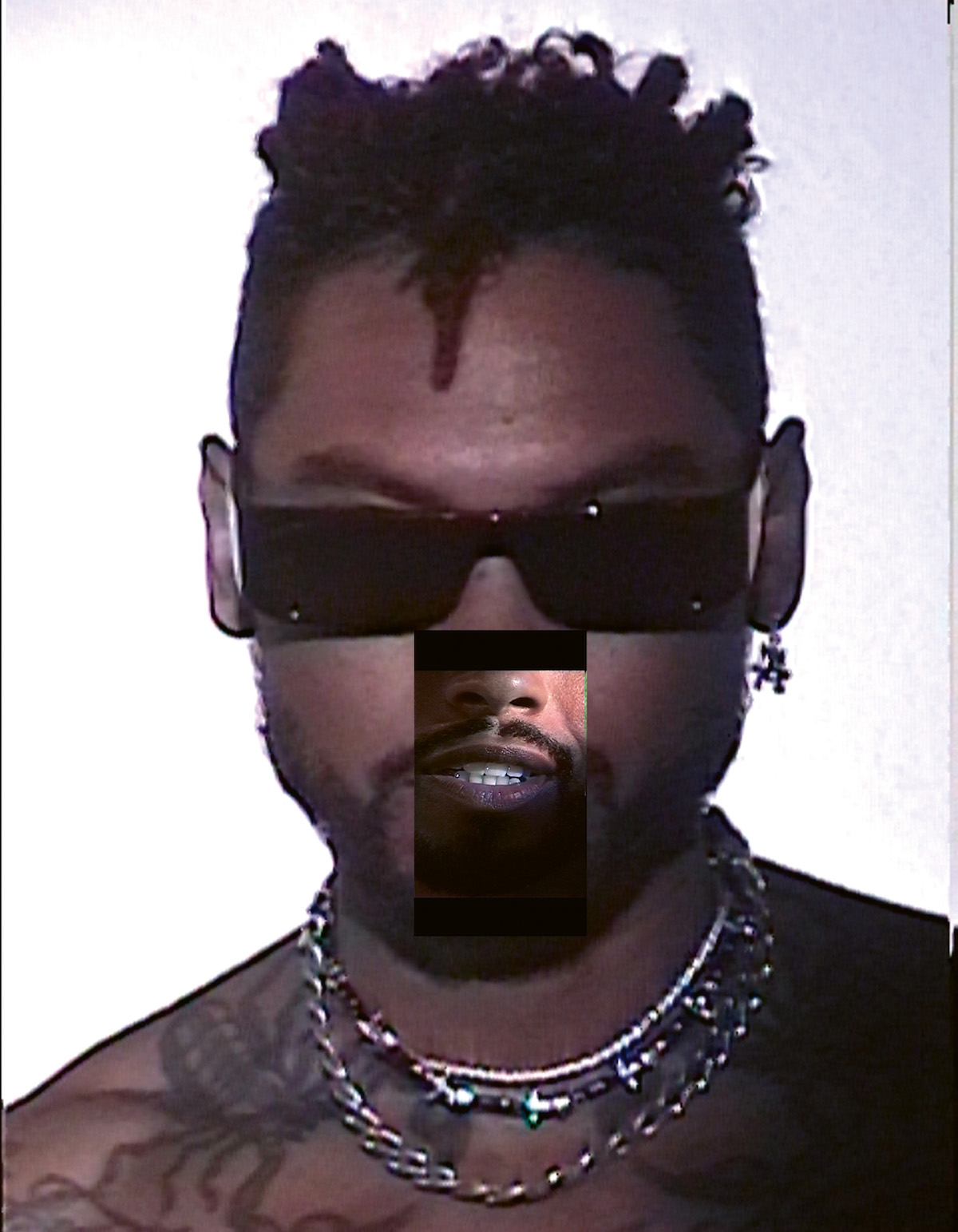
Simon Rasmussen— What was the process for this album? I know that you've gone through something on your personal side, which I can relate to. I'm divorced — two years now.
Miguel— Well, I’ve learned that apologies and congratulations are both in order. What a trip life is — to have experiences that can cause grief and create space for celebration. Something that creates space for a levity and breadth that both require or deserve recognition.
SR— That's what it is. I know that I was in a bad space due to the decisions that I made.
M— We're imperfect, brother.
SR— It's the lessons I've learned that have gotten me to where I am now. The healing, the forgiveness, being able to sit down with the pain and say, “Ok, I’ve made mistakes.”
M— Everybody does. Some are deep, some are easier to figure out. It's something that my divorce really forced me to face and that was an unexpected gift.
SR— That's a huge cause for celebration, as you say.
M— It’s a time for reflection in a way that had not been provoked before. In all honesty, I don't know if there’s anything else that could have gotten me to that kind of serious introspection. Talking with older friends of mine — therapists, mentors — who have either experienced divorce themselves or through friends, relatives, or clients, it’s always common that we — men especially — require jarring experiences to make immense changes in our lives.
SR— Exactly, and I'm like, “ Why can't I just figure this shit out?”
M— It's a part of the human experience, it’s part of the game — the accepting, the learning, the forgiving.
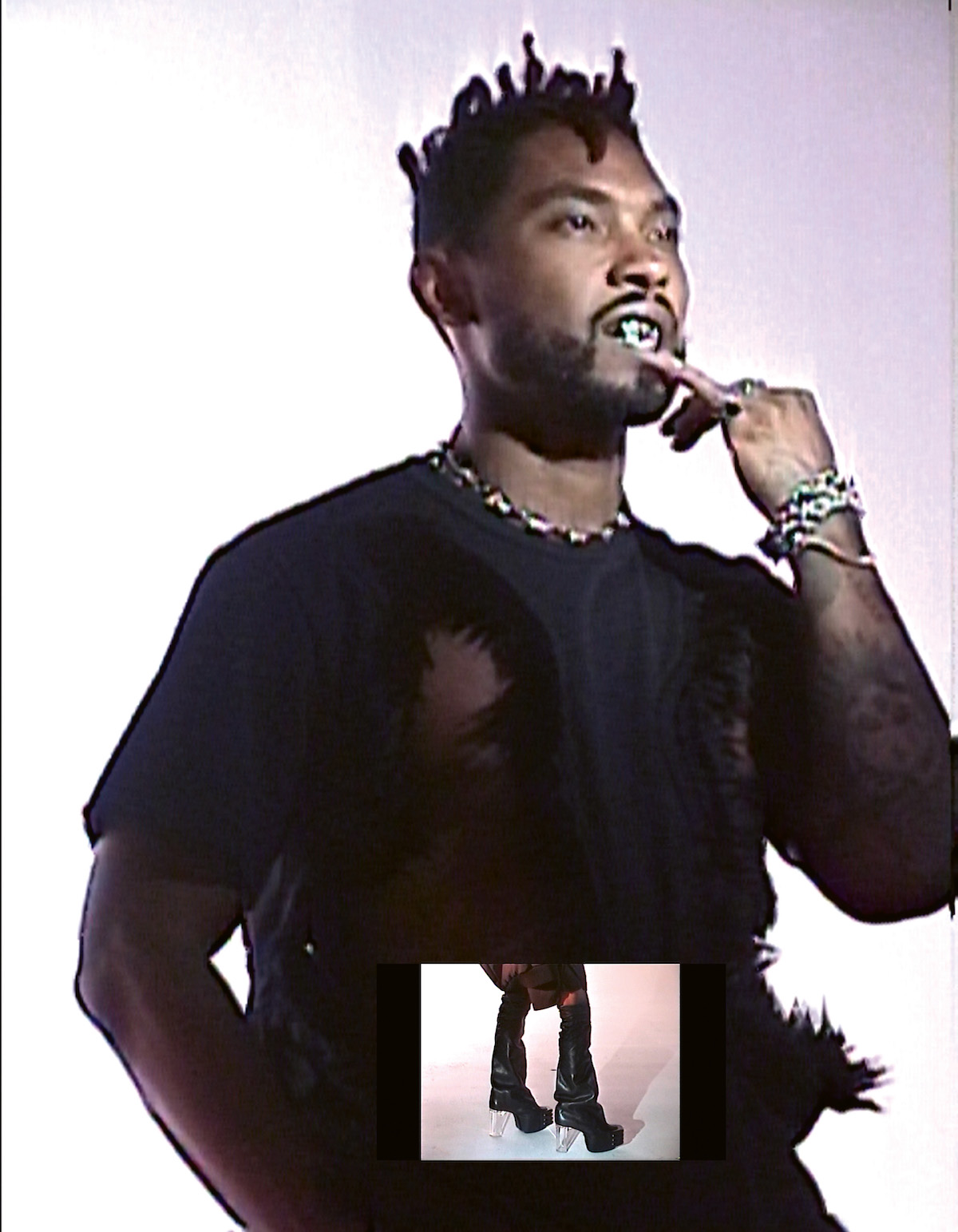
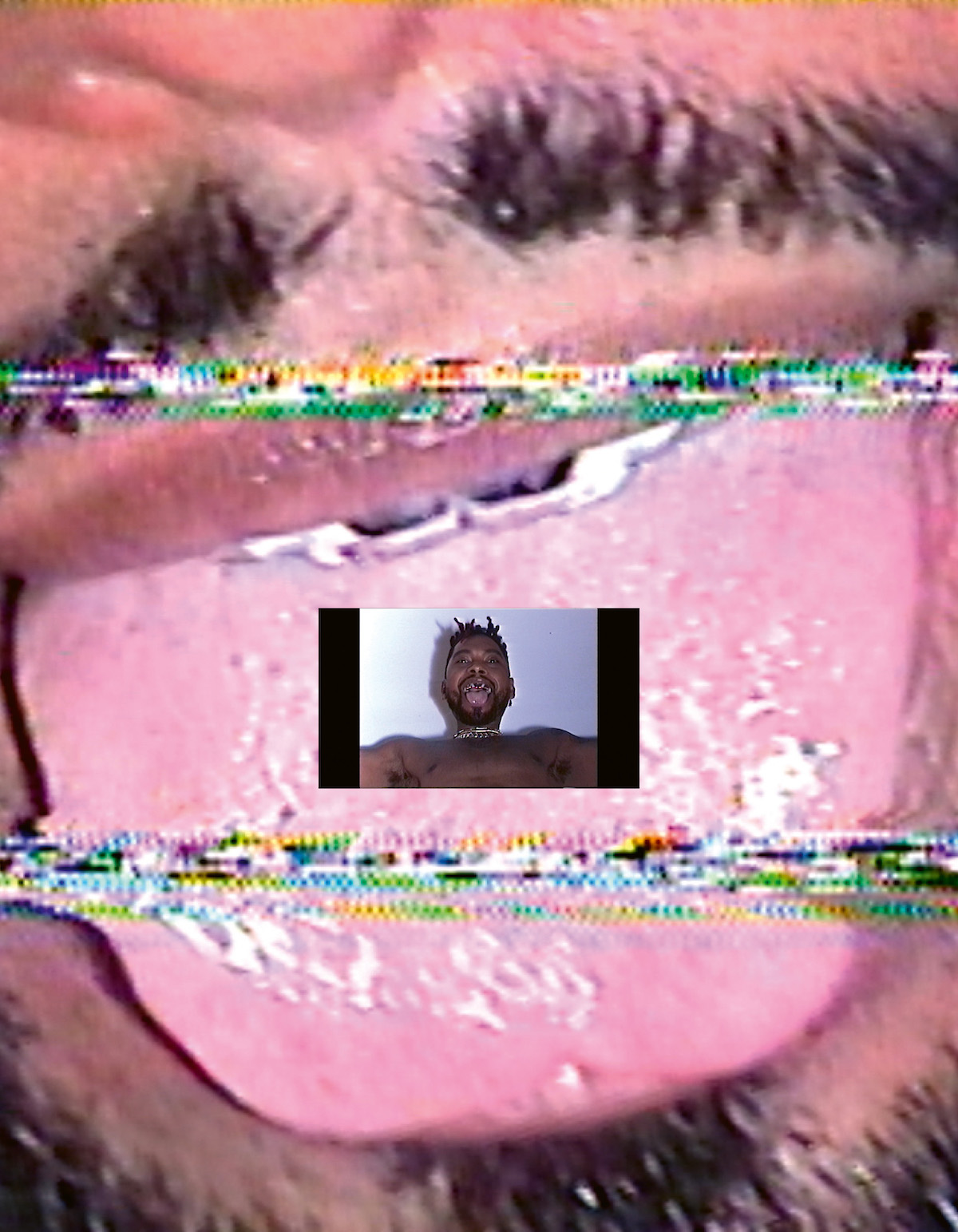
SR— How far along are you in that process?
M— I think that I’ve tapped into an opportunity to recalibrate and I don't want to fuck that up, for real. . As we were saying, you start to realize how you want to spend your time. What matters can get cannibalized by distractions, but being able to recognize that and pivot is probably the phase that I'm in my life overall. It's about discipline and finding a way to be prolific. That's the real goal.
SR— I’ve struggled with finding the balance between discipline and allowing myself the grace of just doing things for me.
M— I think it was Hunter S. Thompson who said it best. “Life should not be a journey to the grave with the intention of arriving safely in a pretty and well-preserved body, but rather to skid in broadside in a cloud of smoke, thoroughly used up, totally worn out, and loudly proclaiming, 'Wow! What a ride!'” Giving ourselves true understanding and being grateful for the opportunity to do is so important but also is being accountable for what we do.
SR— For me, it's about being 100% accountable for my life.
M— A million percent. Life is meant to be lived, bro. I believe it and again, it's discipline that ultimately dictates how things are done, because it's not so much what we do, it's how we do it. I've learned that in small ways and I've unfortunately learned it in really heavy, fucked-up ways, and I'm a better man for it. I grew up in San Pedro, a small town in LA, with a big art and punk scene in the eighties. When I do take my liberties, I'm doing it with the utmost respect for myself, and others. I think that's the most punk thing that one could do or be — to live with self-discipline, to be self-governing. Have you ever heard of Minutemen?
SR— I think so.
M— A really important punk band in the eighties; their energy is something that I'll never forget being around. They embody what to me is at the heart of what it means to be punk. As a mixed kid growing up in San Pedro, I experienced getting jumped by Black and Brown people but also getting knocked down at backyard shows, once when the most unsuspecting white dude with a skinhead helped me up, and asked if I was alright. That to me is kindness as well and where I draw from. As I come into my own, I think about that a lot. Reciprocity; if we treat ourselves good, we treat others good; we hold ourselves accountable, we hold others accountable. If we have it within ourselves, then there's really nothing that anyone could question about what we do, because it’ll show in every expression of our lives.
SR— Is there a spiritual practice you follow?
M— How do I keep my shit together?
SR— Exactly!
M— Definitely meditation, but I also dabble in plant medicine. I do drugs sometimes, with intention, to get past any conscious blocks, any distractions, any fears that keep me from seeing what the fuck is really going on. That's been super helpful. I'll do it by myself if needed, but I also enjoy it with people I trust. More than anything though, it's talking with my friends, my loved ones. We’ll have deep convos over dinner and to me that’s beautiful. This is probably my favorite part of where I’m at in life right now.
SR— I feel that. I was a drug addict when I was 23, 24 years old, but now, I can't do any of it. I don't drink. I don't do drugs. It’s been 18, 19 years, and discipline has been a big part of sobriety. Maybe I can revisit at some point, but honestly, for now, I’m good. What I enjoy now is deep conversation as well.
M— Having people that you can relate to and share principles with, people to learn from and teach, that’s what matters. The one thing I will say that I've become more aware of is my own mortality — not that I wasn't aware of it before, but the awareness is heightened now, more palpable.
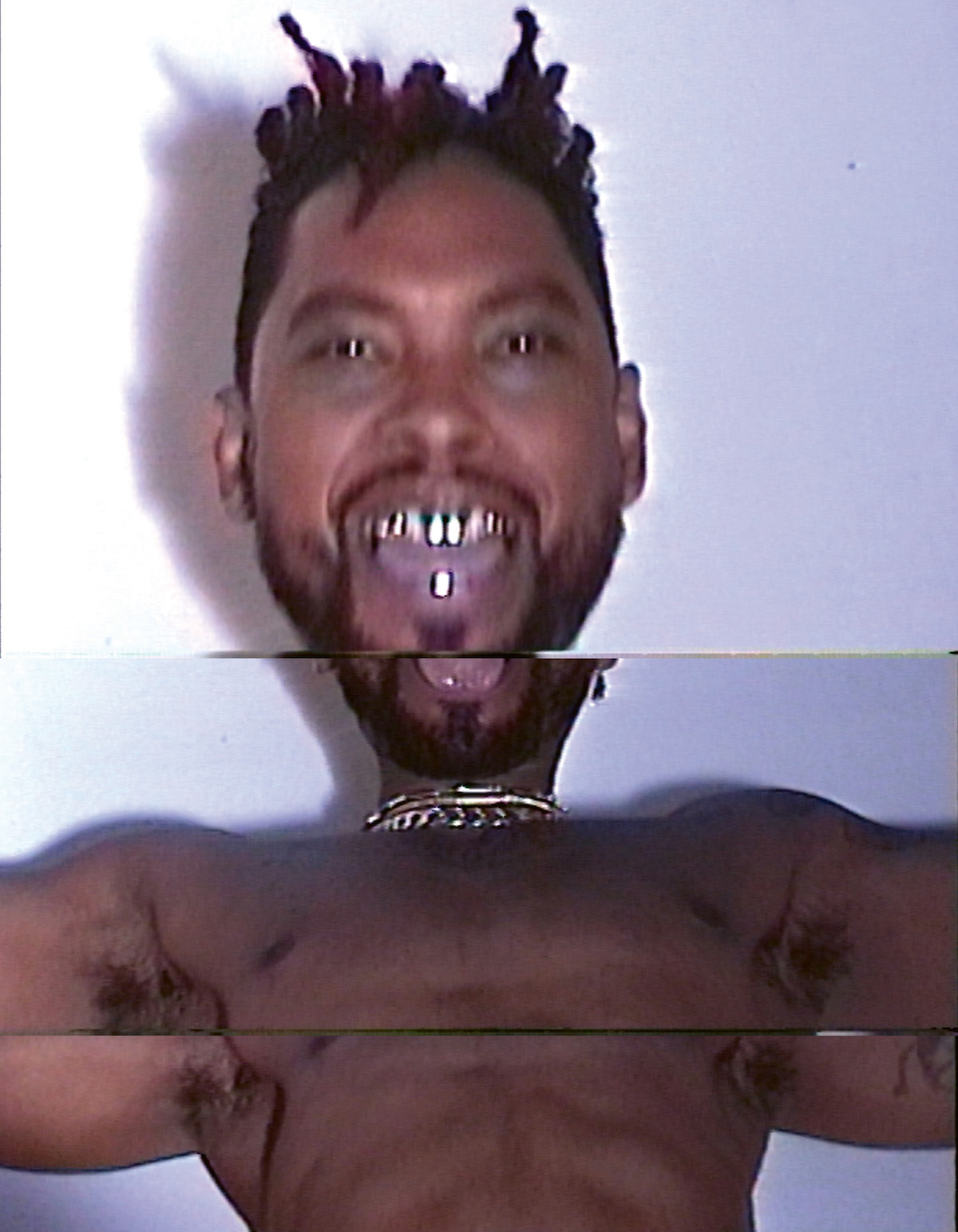
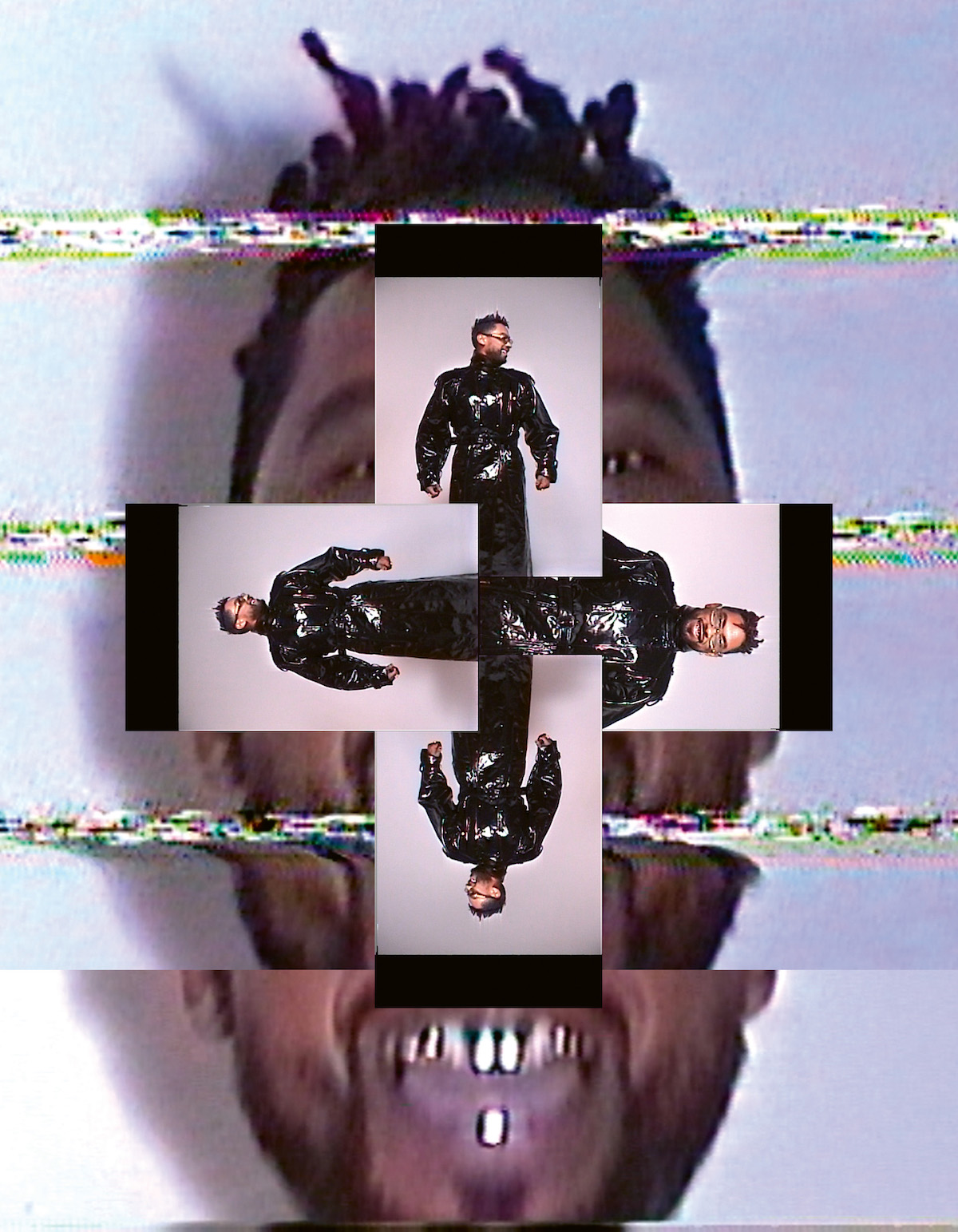
MIGUEL wears COAT by SAINT LAURENT, GLASSES by FLATLIST, JEWELRY is TALENT'S OWN
SR— You have to want to make the best of life while you’re here.
M— I think it’s about honoring all your experiences. The good, the happy, the sad… All of it.
SR— I've been reading a lot of Eckhart Tolle. Also Don Miguel Ruiz.
M— The Four Agreements go crazy.
SR— Agreed. There's so much about forgiveness in it.
M— I think we can do things to our detriment because we want so badly for things to be the ideal, and you realize sometimes it's just not the path. That path of forcing things and trying to make things go your way is rooted in fear of letting go of what you're expecting or what you're wanting it to be. There’s the one that says to just always try your best.
It's starting here internally [Points at head]. If you are treating yourself badly, negative self-talk will manifest and come out in other ways, and then how could you not treat other people like that? You've given yourself the permission to do it to yourself.
SR— Same with boundaries. I found myself crossing other people's boundaries, but reflecting and looking inward, I realized that I didn’t have that boundary for myself, so how could I honor it with other people?
M— It’s a trip how, taking a look at your own habits, you realize that some of them are not even necessarily yours. There’s ones taken on from your circumstances, from your parents, from your family. Being able to look at things and say, “Actually that's not even me. I remember my grandmother doing that sort of thing. That’s probably where my mom or dad got it from.”
SR— I just had a conversation with my mom in which I had to deliver some bad news and I was afraid to. I got myself around to it and she was hurt for a minute but I told her how I felt and she thought it was interesting because she always avoided similar conversations with her mom.
It’s exactly what you said. It seems linear, but it’s a cycle and now I have tools and some kind of awareness to do something about it.
M— Again, we didn’t get here overnight. It doesn’t mean that we can’t make massive changes in a short amount of time, but with intention and clarity, we can grow exponentially. It’s important to give ourselves a little bit of grace.
SR— Why do you do what you do?
M— Initially music was my way of understanding people and, I hate to admit this, but even as a kid I wanted to be liked.
SR— We all did at some point.
M— I was sheltered from a lot of my neighborhood and other kids. I was allowed to play here and there, but making friends that weren’t in the same religion was off-limits. It made my relationships with my peers a little obtuse and growing up racially ambiguous in the eighties was also a big thing. There was always a little bit of distance from people, and music was one of the ways that I could get people to talk to me. Now at this point in my career, I could continue to do what makes people “like” me, but it’s so less about wanting. I could continue to make the song that everyone loves again and again and again, but I find myself wanting to pursue truth and that doesn't always make people happy.
SR— I feel you.
M— As an artist, my job is to express myself in the purest way possible, because that is where true emotionality resides. I lean into my connection to art across the board as a sort of north star when it's time to make decisions on what it is, why I do what I do. I ask, "Does this feel true?" If it's true, it's going to connect with someone. That's why being 5, 6 years old, hearing Donnie Hathaway, and being able to grasp the pain, the loss, the grief he was going through stuck with me. Why could I feel that way if I wouldn’t know romance in my life for decades? That's emotionality. That's the fucking goal and that's what we're going for.
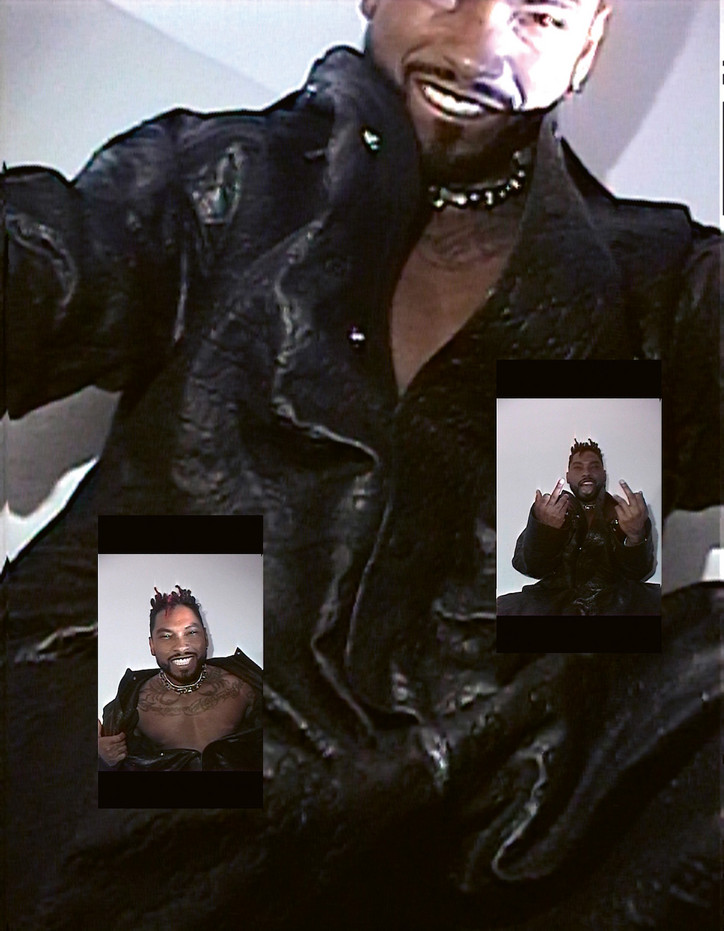
MIGUEL wears JUMPSUIT by GUCCI, JEWELRY is TALENT'S OWN
SR— Punkness and spiritually seem like separate things, but today it feels spirituality and emotionality are punk. That's being offline; having real connections; everything you just talked about. I don’t like to put labels on anything, but you definitely vibrate with a punk sensibility.
M— I grew up as an artist in front of everyone, and a lot of people lack the actual context — that I grew up around punks and around Cholos, and around real gangsters. Now, I’m in a place where I’m just going with what feels right. I don't feel the need to make anyone feel comfortable because they don't understand where I’m from and all they know is that I make songs about love or sex.
SR— That’s what I think about life. Understand it backwards, and live it forwards.
M— True. I will say that the world has evolved so much. We're the same generation, brother — I'm just a couple years behind you. We've seen the world go from television, to internet, to cell phone. We’ve seen how these mediums evolved culture and made all of it interconnected and also how culture has changed what we pay attention to. I think about how alternative Black kids who look racially ambiguous would have never showed up on television, or how if you were any bit of Black, you had to do exactly what they thought Black was. There wasn’t room for evolution. Pharrell is a great example. He’s truly one of a kind.
SR— Do you believe you can be anything now? Are we there yet?
M— I think you can be anything if what you’re doing feels true. No one can question truth.
SR— But that wasn't the reality before.
M— No, it just wasn't.
SR— Someone had to pave the way. Pharrell was definitely one of them.
M— Definitely. Granted, there's always been Black punks, there's always been Latino punks — you can apply whatever against the stereotype — but I think now everything is acceptable if it's coming from a place of truth.
SR— I can't wait for your new music.
M— I’m excited. I’ve been trying new things sonically and even physically – pushing myself with body suspension. Inflicting damage to oneself intentionally and responsibly has been interesting, which, with body suspension is on an entirely new level.
SR— What is it exactly?
M— There’s different versions depending on how extensive you want it to be, but it's piercings and hooks implanted in your back. You’re then pulled into the air by ropes. I've always been interested in it and thought it was the wildest shit. I’ve only done twice from my back, which is called a Superman. I’ll do it again for our album event. I have some friends who knew people who had done it and for them it was a meditative thing that enables us to understand our relationship to pain. It’s become part of the storytelling and intention of this album because it is so much about how I deal with my pain and grief.
SR— I've been going to meditative and silent retreats. There’s this guru in Sweden who has this sauna that gets so hot that it makes you want to leave.
M— That shit will teach you to breathe for sure.
SR— For me, having hit an emotional, spiritual bottom during my divorce, the fear was in my face. I had to face it and I’ve continued to find ways to do that.
M— At the edges of our understanding, we find that we're capable of so much more, and we're also capable of so much better and I think it's those limits that we're actually supposed to push towards. When you push yourself to your limits, you reveal your capabilities and I’ve found something that pushes me to want to live more.
SR— That's where it's at. I know that my journey's not done, but I really had to kill my ego before slowly crawling back to the surface.
M— You realize how much the ego actually robs you of great things, great relationships, great experiences. In hindsight, you see it so clearly and sometimes it's hard to not look at the past and be like, “Fuck.”
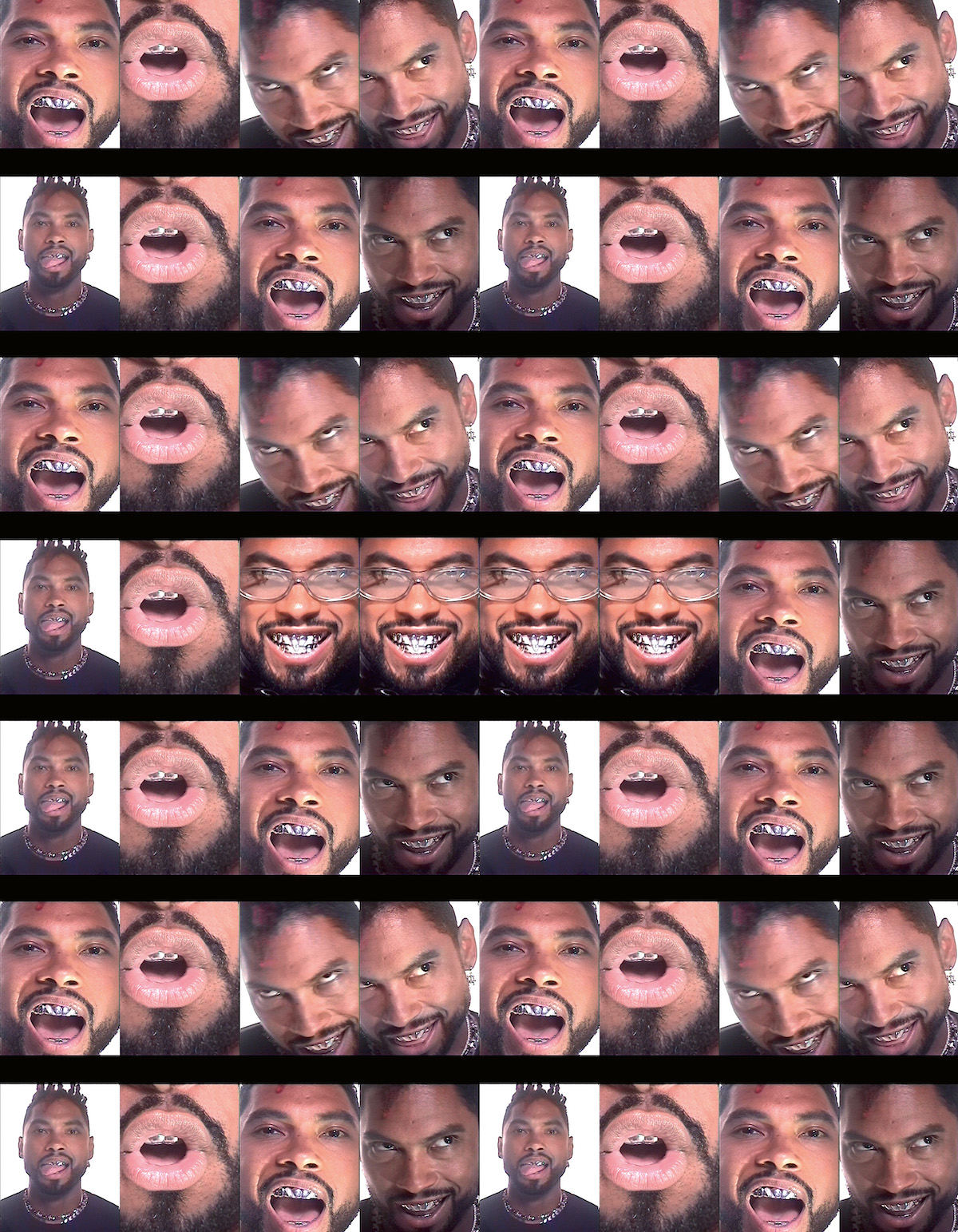
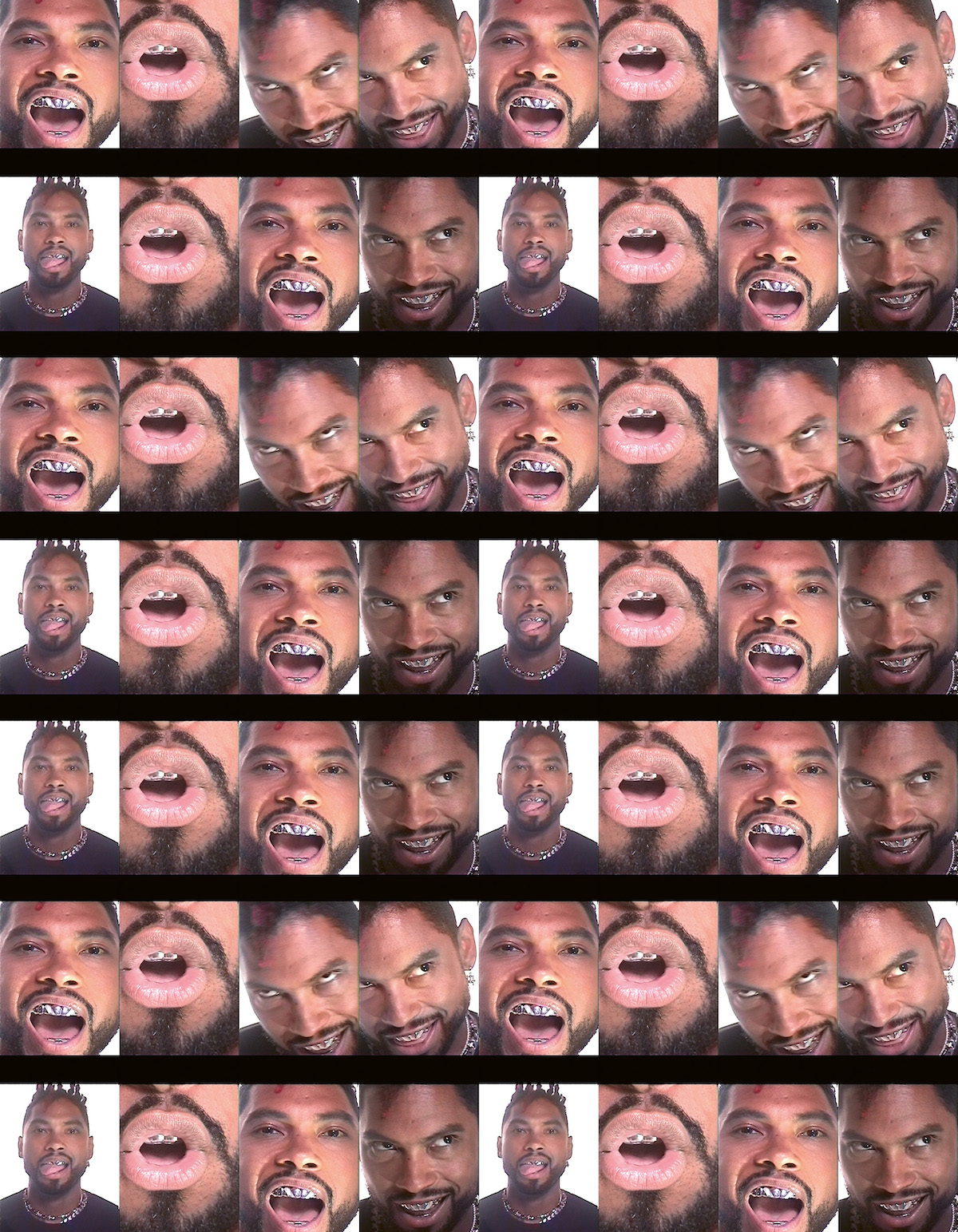
MIGUEL wears GLASSES by FLATLIST, JEWELRY is TALENT'S OWN
SR— What’s the album titled again? Play some tracks on it.
M— Viscera, which is physiologically everything in the middle — your guts. When you have a visceral reaction, it's one that you can't avoid. It's unavoidable, it's instinctual, it's guttural, and the intention of that album was to make an experience that captured the violent and beautiful nature of change. [Starts to play tracks off of the album]. That one was called “Number 9”. I think that video's going to be crazy.
SR— People are going to fuck with that one for sure.
M— The number 9 signifies completion and rebirth. That's the thematic element and song of the album for me.
SR— This might not be the intention whatsoever, but I hear some Monty Python in that.
M— Let's go. That's crazy. Monty Python goes hard. I also thought of happier references of mine, like Beach Boys — they've always been a big influence in my harmonic approach.
SR— I felt joy, for sure; there’s also some humor in it. Would you consider it the sort of album to sit down and listen to?
M— I would say that I make albums for driving, but there are a couple songs that are definitely meant for introspective moments. I also think there’s some on the way somewhere. This album is such a, “We’re en route to something,” because it’s transitory. It’s like I flipped a switch, you know?
This is the last song on the album right here. It’s called “Comma Karma” — the song is about what I hope happens when I die, really. The first line is, "You better throw a party through the weekend. All the homies. Play my favorite song. Good Thoughts, Bad Thoughts, Baby, Funkadelic."
SR— I love it. I’m sure some people are going to be shocked because it’s different for you, but that’s the point right? You’re at the point in your life where all you’re worried about is sharing your truth. 10, 20 years ago, you couldn’t do that.
M— Back in the day it was all like, “Do you have a hit record? Is this a hit? Are you making a hit?” At this point, I’m a vet in this shit. I’ve done it already. I’ve proven that I can do it and look at that, “Sure Thing” was number one again just because of social media.
SR— Yeah. What's up with that?
M— Bro, I have no clue. Who knows. The universe?
SR— Don't get me wrong, it's a great song. I actually listened to it today. Maybe the universe is like, "Oh wait, he’s about to pop right now so let’s flip this.”
M— That’s a song from my first album … Now, I am poised to continue to do what I’m here to do, which is to express — to do what feels true and trust that it will find its time and who it belongs to when it should.
